#all very unreliable sources probably
Text
Spiritual Meaning of Being Struck By Lightning:
Surprise
While we can often predict the likelihood of a lightning strike by drawing inferences from the weather, there’s still no reliable way to know the exact time a lightning strike is going to occur.
The spiritual implication of this is that something special and profound awaits you in the near future.
It may be something you have been praying about, or it may be about some uncertainties in your life journey.
Clearness
If you are going through a dark phase in your life and it seems you can’t find the right path to take, you may need to seek clarity of purpose.
A sudden flash of light can change everything and help you locate a path that could lead you to a breakthrough.
If you have ever been outside on a rainy night, you would notice how a single lightning strike lights up everywhere, and even objects hundreds of meters away are visible.
The spiritual meaning of this could be that you are about to stumble on some new opportunities in your life journey.
A lightning bolt is a symbol of revelation, so make sure you keep your mind open to new opportunities.
New ideas
The science of lightning strikes is a type of creation. The formation of lightning involves the condensation of atmospheric particles into clouds which later build up before breaking up.
So if you are struck by lightning, the spiritual interpretation of this could indicate the buildup of creative energy.
It could be a wake-up call for you to harness the energy within you and believe more in yourself.
Everything you need to thrive in your life journey is already inside of you, and you only need to look inward and harness it.
An imminent storm
If you get struck by lightning, or you see lightning when you are in an unconscious state, such as in a dream or other forms, it could be a stern warning and encouragement from the divine realm and your guardian angels that there is an impending rough patch in the path ahead.
You may be getting subtle signals for you to brace up and stay strong when those challenges arise. It is a way of encouraging you to stand firm and remain focused in the face of difficulties.
Also, these impending storms could be a stepping stone to bigger things in your life journey, so you must find the courage and determination to overcome the storm.
After all, there’s always calm after every storm. (x)
#me proceeding to read every single google page#all very unreliable sources probably#but who cares#the imminent storm makes sense with either the sperm donor arc or the buckley parents#new ideas is about himself and who he is as a person#revelations and something special and profound#need I say more?#just give Buck all the love please#that's the something he's been praying about his whole life#buddie s6b#buddie#buddie 6b#buddie canon#buckeddie#buck/eddie#buckley diaz family
10 notes
·
View notes
Text
Okay I am going to use the Somerton situation to talk about something that is very important to me. Following the discussion I have seen former Somerton fans being disappointed in themselves and questioning how they can ever trust another video essayist again. I have also seen some people being smug because to them Somerton was obviously unreliable from the start. As a person who also saw the "red flags" in Somerton, I would like to skip the smugness and talk a bit about what the red flags were to me.
Someone else has probably posted something similar and Hbomberguy's & Todd in the Shadows's videos touched a few of these points, but they didn't focus on them or how to spot these things. I think it is a good thing: I think it would have reinforced the idea that Somerton's fans were to blame for being lied to, and these youtubers didn't want to pin any blame on the fans. Also, some of the things I'm going to talk about were not by any means proof of him being unreliable, they were common tropes I personally associate with people who are bullshitting on internet. Think of it as something like spotting terfs: If you consider following a tumblr user and find out they have at some point posted "males will always be a danger to females no matter what they say", it is very possible that they are not a terf. Maybe they were having a bad day and were just wording their post badly – But you should probably search "trans" from their blog before following them, just to be sure.
So, the tropes in James Somerton's content that I consider red flags:
Lack of sources. This one may seem obvious and Hbomb talked about this in his video, but the lack of sources in his videos was outrageous. Video essays are called essays for a reason, they are not supposed to be just a guy talking about whatever comes to his mind, they should be well researched essays. Obviously video essays should contain one's own thoughts and interpretations and those do not need citations. But James Somerton didn't come out of the womb knowing everything about LGBT history, Disney and film theory, if he actually knew something about all this stuff, he should have learnt it from somewhere. There should be sources he could point to. It is very common that even when a video essayist doesn't tell you where they got all their information, they open their video by saying stuff like "when I prepared for this video I read the book Also sprach Zarathustra by Friedrich Nietzsche and this one thrilling blog post about lesbian cruising in 1960s Sweden". From what I've seen, James does not really do this. From watching his videos you could arrive to the conclusion that James Somerton does not read any books, he just knows everything. There are situations where people don't feel the need to add sources, like when the information is considered common knowledge or when the topic relates heavily to the essayist's actual academic field or profession. This is okay and very understandable, but can sometimes be dangerous, since if the video essayist markets himself as a marketing specialist, people are more likely to take his word for stuff that has to do with marketing, even without sources. It is understandable that in many situations an essayist may think "why should I cite a source? I know this thing!", but doing your research well is partly about checking if the information you are certain of is actually true. Also, as Hbomb pointed out, if you can cite a source, your audience can go learn more about the subject. It's not about anyone doubting you know your stuff, it's about learning. That's why well-respected video essayists usually cite their sources very clearly.
Lack of pictures and screenshots. This is about different kinds of sources again, many things on this list are kind of about sources. An example: When James Somerton made a video about JKR, he mentioned something about Rowling at one time saying that trans students in 30-50Feralhogs (or whatever the wizard school is called) could use magic to present as their gender. If this was any other video essayist, you'd expect a tweet to pop up, or something else confirming Rowling ever said this. Nothing pops up, obviously because Rowling didn't say this, but you can't see anything fishy in that because things rarely pop up in Somerton's videos. He doesn't show you court documents when speaking about a court case, he doesn't show you the comments apparently mad at him for implying the gay anime is gay when he is complaining about people being mad at him. There is a reason people show screenshots and tweets in video essays. When a good video essayist says JK Rowling has tweeted that all people who menstruate should be referred to as women, the video essayist shows the tweet so people know they are not making it up. If there were hoards of annoying bitc-- I mean, angry white women whining about gay sex in HuffPost articles or Somerton's youtube comments, he should have no trouble showing you those. Remember that you should not trust someone just because they show you pictures or screenshots. Pictures can be photoshopped, screenshots can be doctored. Many youtubers are aware that you listen to their videos while cleaning or while walking your dog and don't actually see the screen all the time, and some may take advantage of that by saying something like "and here she threatened to kill me" while showing a text message where someone said "die mad about it". A screenshot alone isn't much but you should demand to see the screenshot.
Passive voice. I am once again bitching about this. Somerton repeatedly says things like "it's been said that" or "it was common knowledge that" or "a legend says that" or "according to most interpretations". He doesn't say who says it, making it very hard to fact check and that seems to be his goal in some cases.
Relying heavily on anecdotes. Writing a dense, analytical video about film theory or history can be exhausting and you may want to pepper in little fun facts. However Somerton seemed to rely on these heavily; he can't just talk about how he has totally bought every lie told by The Pink Swastika, he also needs to tell a cute little anecdote about SS men forcing sexual favours out of men. He can't just tell a story about a court case, he needs to add in ridiculous stuff about the jury booing. This is what I mean by not all the things on this list being necessarily proof of someone being unreliable. Many people use anecdotes and little stories in their storytelling, it makes the videos flow better and it's hard to decide which anecdotes are valid and which are not. A source obviously makes an anecdote a bit more believable, but here are some things that instantly make me fact check an anecdote:
It's a bit too convenient, poetic or ironic. Sometimes real life is weirder than fiction but if an anecdote is "perfect" and has an amazing punchline and you could write twelve poems about it, there is a possibility it was invented by pop science books.
It assumes your political enemies are stupid. Dunking on conservatives, MRAs and transphobes is always fun and after you've seen a lot of this kind of content it's easy to believe anything about these people. You must resist the impulse to believe everything that may make your opponents look stupid.
The person telling the anecdote implies it is an example of a larger, systemic problem. You know what's worse than taking a random happenstance from human history or internet and basing an entire political theory on it? The said random happenstance being made up. You should in general be wary of people telling one story and explaining why it's an example of everything that's wrong in the world. We live in a huge world. You can always find a white woman who loves cute gays but hates the idea of Nick Heartstopper and Charlie Heartstopper getting nasty but that doesn't mean it's an indicator of a larger issue.
Simplifying complex issues. We all know that "only the boring gays survived the AIDS crisis, and that's why gays started to only care about marriage equality and military" is a horrible, insensitive thing to say, but you also have to think about it for like two seconds to realize that it can't be correct. It kind of reminds me of the "roe v wade caused the crime drop of 1990s" claim in Freakonomics. It sounds logical and simple, like a basic math calculation. Societal issues rarely are like that, though. You should never believe anyone who tells you about a huge societal shift and says it happened because of one thing and one thing only.
These were some of the things I noticed in Somerton's content that caused me to distrust him. I hope these were helpful to you and feel free to add your own "red flags" if you feel like it!
#phew. maybe that's enough salt for one day.#james somerton#hbomberguy#todd in the shadows#edit:// embarrassingly many mistakes in the original post. in my defence i have a fever and english isn't my first language. forgive me#edit2:// made the text bigger!
2K notes
·
View notes
Text
Justice for Raphael
I'm very new to Tumblr, I created an account here a few months ago after I discovered all the amazing Bg3-related art content that this place has to offer. Since then, I've never posted a single thing and barely left any comments, I'm not a very social person...but today I was scrolling my favorite bg3-related feed, when I stumbled upon a post of someone who received a rather rude ask from an anon whose sole purpose was to mock their works and insult their (possibly) favorite character Raphael, who was referred to by that anon as a "100% canon two pump chump bottom cringe clown".
It is saddening to get yet another confirmation that some people out there aren't capable of respecting others' likes, not even in a fictional/virtual environment...but I guess that's to be expected. Besides the obvious, what made me decide to write this wall of text as my very first post is that Raphael happens to be my favorite too, the one and only fictional character I've ever felt invested in, and probably the reason why Bg3 will leave a life-long lasting impression on me.
So here I am, trying my best to point out some facts that (apparently) are easy to go amiss for some people out here:
First of all, there's nothing canon regarding what Haarlep says of Raphael, as a character's opinion about another isn't a fact to begin with. Especially if said character is (proved by facts) very unreliable as a source: him being an incubus whose standards are undoubtedly different from any mortals' and the fact that he hates Raphael are but the most obvious. Not to mention that "Speak with the dead" isn't 100% reliable either by D&D 5e rules ("the corpse is under no compulsion to offer a truthful answer if you are hostile to it or it recognizes you as an enemy"). Besides that, even if everything Haarlep says is to be considered true, the mocking words the players can say to Raphael before the fight are NOT, as Haarlep never gives such info to the player (he only responds with a "no" if asked about the matter). That line we can say before the fight is but the player's guess/ childish mockery, certainly it's not a fact.
From a purely objective perspective, the only info Haarlep gives to the player that isn't merely his opinion is Raphael's obvious selfishness and narcissism (the HoH is covered with images of him) and the fact that he likely only sleeps with himself (he has his incubus wearing his shape, even his name). By no means does that make Raphael a "cringe clown", nor would it even in the case where Haarlep spoke entirely the truth. Honestly, it never ceases to baffle me how some people can be so shortsighted and shallow. But perhaps those people are yet to grow up and come to learn that there can be much hidden beneath someone's (fictional or not) behavior. There's nothing to mock about the "Raphael only wants to sleep with himself and only loves himself" statement.
How could it be otherwise? How, when the only person who ever loved Raphael, the only one he could trust and rely on since his birth, was himself? How could he crave someone's affection and so, be seen as weak? How could he care for another or their feelings when he never got that care or respect, to begin with? Despite his theatrics and his facade, Raphael was born Cambion, a half-breed never to be considered more than the lesser of the devils in the hierarchy of the Hells. Cambions cannot rank up, no matter their blood ties, yet Raphael managed to achieve all that he has...his palace, his many souls, and his power. None of that was gifted to him, he fought hard and earned every last bit of it with his claws, his wits, and his determination. I admire Raphael for that, for striving to become something greater than what he was supposed to be...something better than his father's "half-devil" son.
To reduce Raphael, who's most certainly one of the deepest and most complex characters we can encounter in the game, to a "100% canon two pump chump bottom cringe clown" is beyond low, very immature, and a rather shallow view, more so if it comes from someone who hasn't even had the guts to show their name...
Well, that's all. I doubt someone will make it this far, as I wrote a veeeeery long paragraph. But for once, I wanted to have my say ^^
#bg3#baldur's gate 3#bg3 raphael#raphael bg3#baldur's gate 3 raphael#raphael the cambion#first post#fuck the haters
170 notes
·
View notes
Text
last twilight episode 6 thoughts, feelings, etc.
it's that time again and i've decided to be very extra for this episode because, well, it deserves it. what a ride that was. fair warning i was feeling fucking romantic and wistful for this.
we have August showing up, trying to integrate himself into their daily routine, and then disrupting that routine entirely. and when he suggests running with Day Mhok seems defensive, jealous and probably concerned that August has seemed unreliable before - and currently is operating with more information than Day, leaving them on unequal footing. August knows about Day's feelings for him, but Day has no idea August knows, and that's not really fair. but Mhok doesn't want to say anything because maybe, just maybe, August could make Day happy. maybe Day could finally get what he wants for the first time in a long while.
so Mhok watches. because Mhok will never put himself first, it's not who he is.

Day clings to these broken and battered shoes, a connection to a past life he thought he had to leave behind. he clings to familiarity and comfort. all things Mhok has become to him.
and so maybe Mhok sees himself in these battered, rough around the edges shoes. maybe Mhok believes he can be fixed, just like the splitting sole. maybe Day is fixing him every day, not in a stupid fucking 'he saved me' bullshit like the crying guy at the interview, but in a genuine, he's changed my outlook on life, my perspective, my everything, and made me a better person. maybe these scuffed shoes can be better if someone helps them.
and so he fixes the shoes, just as he's been fixing himself ever since he walked through Day's front door, and he gives Day the sunflower he couldn't give him before. Day asks him what it is but again Mhok doesn't have the heart to say. he doesn't elaborate, doesn't explain, only moves past the moment because this isn't for him, isn't about him, this is about Day reclaiming something he thought he lost.
How can I throw them away? I love them so much.
Maybe if he loves these broken and scuffed shoes he could love me too.
and here's where we have a story narrating for us again, my absolute favorite thing about this entire series. i love the narration from the books they read - and i love that the boys are both simultaneously the character represented. the words always have a way of applying to both of them and it's fucking gorgeous.
and with this narration we've been so seamlessly slotted into Mhok's POV. everything up until now has focused pretty strongly on Day's struggles and adjustments, we've seen everything from the lens of Day and what he's facing, but suddenly we're so perfectly slotted into Mhok's body, something we haven't focused too hard on yet. sure, we've seen his pain and his grief, but we're seeing so much more now, so many little intricacies and inner thoughts. i absolutely love how this was done.
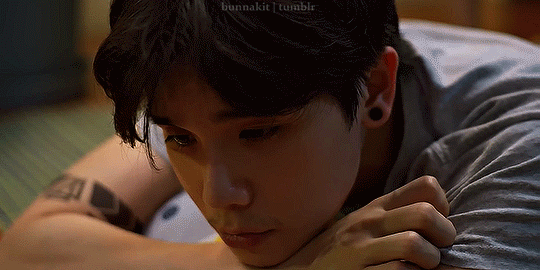
Do you think I fell in love with him without realizing it?
and as he has this love blooming in his chest, this realization of the magnitude of his feelings - that he doesn't just want Day to be happy but wants to be the source of that happiness - Mhok begins to become invisible again. it's a place he's familiar with and it doesn't come as a surprise. just with a mournful resignation. this is how it always is, and how it was always going to be.
and just like with Porjai he decides to step back. it's worth it as long as the people he loves are happy; even if that means he's not by their side.
like the scuffed shoes, Mhok is replaced with something better. Day put in his eye drops and no longer looks to Mhok but to August instead.
and as Mee and Day's fear grows smaller Mhok's grows larger. the fear of being left behind and the fear of being forgotten. the fear that Day no longer needs him, will no longer look to him for help or seek him out. the fear that he's lost his place as Day's friend, slid back into the role of only a caretaker, and perhaps even further back still into a stranger.
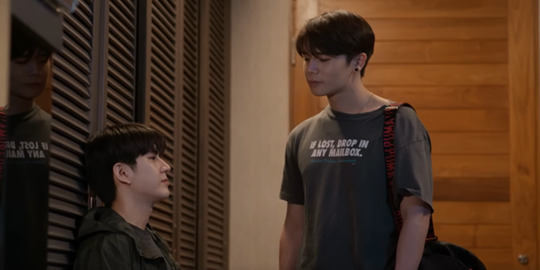
Mhok's shirt reads: IF LOST, DROP IN ANY MAILBOX. Return Postage Guaranteed.
because Mhok is lost. he doesn't know where he stands anymore, where he fits into Day's life. but he knows he'll always return to Day's side for as long as he needs him.

the scuffed shoes are left on the shelf, just as Mhok has tucked away his feelings for Day. they'll always be there, familiar and reliable, and maybe someday Day will need them again. maybe someday.
and then we learn that Night smokes, and maybe Day never hated the smell of cigarettes.
I think his voice is like the scent of cigarettes.
maybe Day just hated the way the smell reminded him of Night.
and we learn Day had fully resigned himself to spending his birthday alone.
his mother would be out of town, spending it with Night is out of the question, August has practice, and it's Mhok's day off. as if Mhok would rather be anywhere else. Day is used to not being a priority.
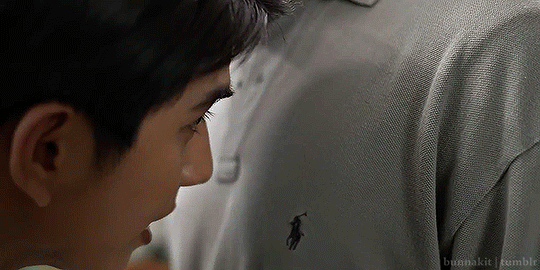
as Day peers at Mhok's chest maybe it feels like he can see into him. Mhok has always felt invisible, but somehow Day saw him in spite of all of that. maybe he wonders if Day can see into his chest, see that his heart is made of sunflowers, tucked away and kept in secret as to not inconvenience Day. and maybe Mhok wonders: can you see them? can you see the way they bloom and turn towards your light?
and for a moment Mhok is weak. he takes Day's hand and places it back on his chest as if to say: my heart is here and it belongs to you, can't you feel it?
and here is where i will begin to cry and not stop crying until the end of the episode - so if you're crying don't worry, i'm here with you.
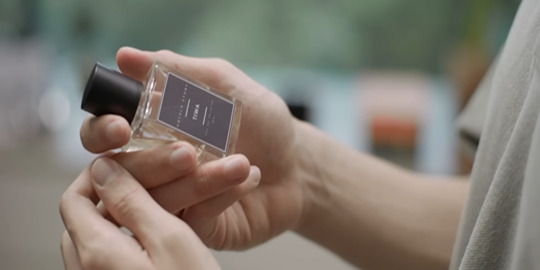
because Day sprays Mhok with Tiwa cologne. fucking Tiwa cologne.
Tiwa means day time. the cologne was created to mimic the atmosphere of the Thai countryside during the day.
suddenly, Mhok is bathed in the scent of Day. both the concept and the man.
it's Day's favorite scent.
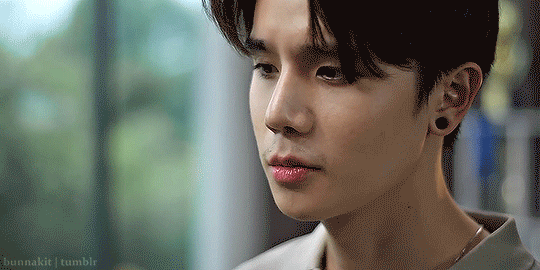
It smells both like toughness and aggression.
At first, you want to flee from it.
But after you scent it for a while, it makes you feel warm.
and Mhok's face falls at first because is that how Day sees him? he thought Day saw him, he thought Day understood that he's not all the things people say he is and - oh.
oh.
you can see the palpable relief across Mhok's face because Day does see him, does understand him.
(the cologne also shows us once again Day's privilege. Tiwa costs $140 a bottle, or ฿4884)
again Day asks what Mhok is going to this dinner as, and then asks why Mhok is so secretive.
and maybe for a moment, for just those fleeting few minutes they spent getting ready together, Mhok was able to pretend this was real. he was able to pretend Day was going to dinner with him, would stay by his side and enjoy his birthday with him, create new memories with him.
but that's not for him. it's just another sunflower he tucks away in his chest.
they arrive at the party and there's no place for Mhok; not at Day's side, not at the table, not anywhere. he's never acknowledged again by anyone there, no one offers him a spot because he's an outsider, this place isn't for him. when the sun no longer shines on Mhok he is invisible once again.
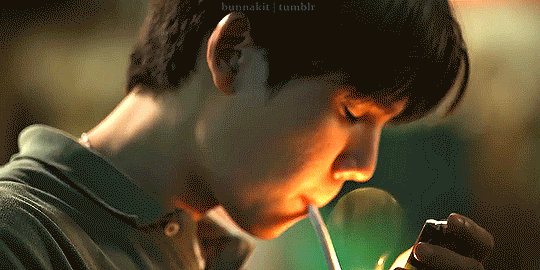
suddenly, Mhok is back in his own fish tank - because it's not only Little Day that freed himself of the cloying miasma of his environment but Big Mhok had as well. his tank was clean, he could breathe and see clearly again.
but now he's back there, as smoke fills his lungs and regret tastes like ash on his tongue. he can't smell the jasmine blooms anymore.
Day still looks for him, still seeks him out because Mhok has always stayed, has always been around even when Day didn't know he needed him. Mhok's been there at every step of this journey and now suddenly Day is adrift on his own. what do you do when the person that has always been there is suddenly gone?
it probably feels as if Day has been robbed of yet another one of his senses.
and we see Day get overwhelmed again, the narrative has shifted away from Mhok now and we're nestled back in Day's body where things are so loud and so much, too much, and he doesn't have the one person he can find comfort in there. everyone is trying too hard, treating him like glass, and he's still a fucking human being, he's still an adult man, he's not a fucking child -
and so he escapes. he finds a moment of peace and collects himself. he hears someone approach and who else could it be but Mhok? it's always Mhok, it's always been Mhok.
but Mhok's not here.
August is.
and suddenly August is kissing him but it's not right, it doesn't feel like he thought it would, and maybe he realizes he liked the idea of August more than August himself. maybe he clung to memories made fond and soft with time.
because this? this is not the kiss of a man full of hope and love. if Bad Buddy taught me anything, this is a kiss goodbye.

the hero is coming and it's time for the villain to go.
Mhok knows better than anyone that the one thing Day doesn't want from anyone, the one thing he fears the most in all of this, is receiving pity. he's never wanted to be pitied for any of this, but August has just pitied him in the worst possible way. and of course Mhok is here to see it.
of course Mhok would come back, now of all times.
and we see Mhok speak in a way we haven't before. his rage becomes incandescent, beyond the limits of just shouting, and it's the quiet of his rage that becomes far more terrifying. it's the quiet calm before the storm. Day has never seen Mhok enraged, not really, he's never been there when Mhok has hit someone, but he must hear the control slipping from Mhok's voice.
because August held everything Mhok had ever wanted in his hands and played with it, pitied it, and tossed it away. how can he be anything but full of bitter fury?
but as Day holds Mhok's hand he stops. he reluctantly releases his hold and curls his fingers around Day's hand. he'd do anything for Day, now more than ever.
Mhok speaks softly to Day and holds him close, the hug as much for Day as it is for him. they're both broken, both trying to hold on to the withered petals of their hearts. if they hold on tight enough maybe they can hold each other together.
and now we're to my absolute favorite recurring thing Mhok does.
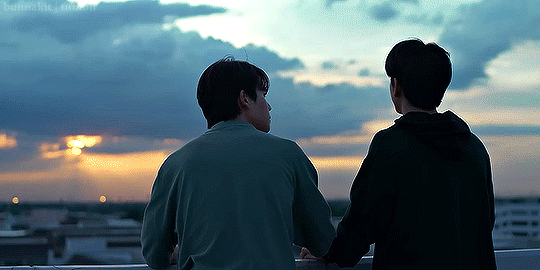
Mhok takes Day away, he doesn't let him retreat into that tiny fish tank. Mhok brings Day out into the world, to breathe the fresh air.
and each time he's brought Day somewhere he can enjoy without his sight - yes, even this rooftop.
on the porch, Day could smell the jasmine blossoms.
Day could smell the flowers at the market, was surrounded by their scent.
now he's bathed in the light of the rising sun, in the warmth it has to offer.
the world feels different in the early hours of the morning. the air is a little colder, a little thinner, everything is more quiet and subdued. you can feel the sun start to thaw out the Earth, can feel as it glides over your face and warms your cheeks.
this place is special to Mhok, a small sanctuary he's tucked away for himself, and now he's sharing it - and a shard of his past - with Day. in exchange, Day opens up. he explains that no one really liked him before, that each person (Gee not withstanding) at that party pitied him and were only there as some sort of act of charity.
I'm just so damn lucky to be blind.
because people are looking at him now, right? he has everyone's attention now. he got to kiss his crush. people would fall at his feet to help him.
but it's all wrong, tainted with pity and charity. he has their pity but not their affection.
Is there anyone else in this world who doesn't feel pity for me?
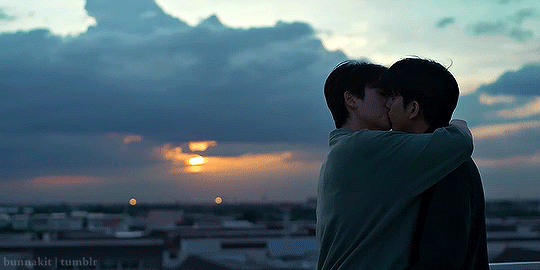
Do you still think I feel pity for you? Mhok asks after kissing Day in the light of the rising sun, because Mhok has never pitied Day, not for a single moment in time. it's not pity that he feels housed in his chest but love, overwhelming and all consuming.
just as the moon represented the hearts of Moonlight Chicken so does the sun represent the hearts of Last Twilight. this is the dawn of something new for both of them, fragile but hopeful.
I'M JUST FEELING SO FUCKING MUCH. do you think p'aof will be my best friend? if you've read this far i'm smooching you and also here's a dumb little surprise.
tag loves: @benkaaoi @callipigio @lookwhatihave
#bunn meta#ltts meta#last twilight#last twilight the series#mhokday#this took me 3 hours to put together#what am i doing with my life
175 notes
·
View notes
Text
I'm noticing that adults are often very offended when they see a child who has something they themselves didn't have in their childhood. I've had someone randomly start ranting about how their own grandchildren have 'too much toys', and how they don't appreciate any of it. They went on to explain how they, as a child, only had one toy, and they had to play with that one alone. They're also upset that children can now use phones, which also wasn't an option in their own childhood.
This is concerning to me, because while busy noticing all the things that children have, which are toys and phones, people don't tend to notice the things we had that are no longer available to the new generations. Planet free of pollution, free of climate change, adults got to experience that. Economy that isn't in this bad of a state, availability of jobs, education being worth something, financial safety, probability of owning a home. All of this has critically declined and turned into unstable, unreliable and difficult to manage situation for children, to the point where there's no clear path to a safe future anymore, for anyone. Current children have to invent jobs and find a way to produce a safe future without relying on an existing path, something that was available for most of the population in the past.
And the availability of phones and toys is not necessarily a luxury; back then nobody had a phone, or a mountain of toys, so it would be unusual and privileged for just one child to have it. But when everyone has that, it would be unusual and almost humiliating not to have it. The prices of these had reduced, they're more available and easy to get. The phones connected to the internet will ensure that the child will be exposed to a lot of information every day, and they'll have to find a way to deal with all that, it can become overwhelming and damage their attention span and emotional stability, if they're constantly exposed to distressing or disturbing information, which often finds its way to kids.
What will it mean for their life, if they had toys and phones as kids, but later on, they don't have a safe job? They can't hope to have a home of their own? They are not at freedom to financially plan their futures, their families, they have to depend on their own parents or relatives to get by? What will it feel like when they can't count on the climate and safe and reliable food sources? What when they're suffocated by the financial demands of just staying alive and fed? What if they don't have anyone to help financially? What if they're rendered mentally ill by the stress and perils happening in the world, all of it so close to them via constant overload of pain and suffering?
Having toys and phones is nothing compared to having an experience of a safe, stable, predictable life, on a planet with a normal, stable climate. We failed to secure this to our children. We have no business being jealous that they now have a phone.
#generational gap#climate change#adults being jealous and dumb#lack of stability#lack of a safe future
112 notes
·
View notes
Text
Let's Talk Costuming: A Very Professional Midwife/Cobbler!
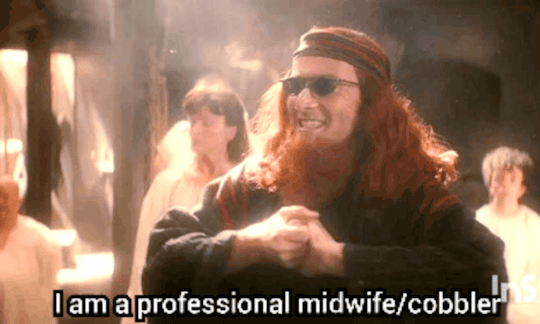
At last, the long awaited sequel to Avaunt! aka my post analyzing Aziraphale's (and by extension the other angels as well) costumes from the Job flashback!! I knew Bildad's robes reminded me of something but it has been hiding stubbornly in the back of my memories for weeks, and I was doing myself a little doodle and it came to me, so here we are, friends, buckle up.
For better or for worse (depending who you ask), Crowley's costuming for this bit does not mirror Aziraphale's Renaissance-inspired aesthetic. That is, he is neither buff nor naked, as demons are often shown, nor is he a fucked up little guy
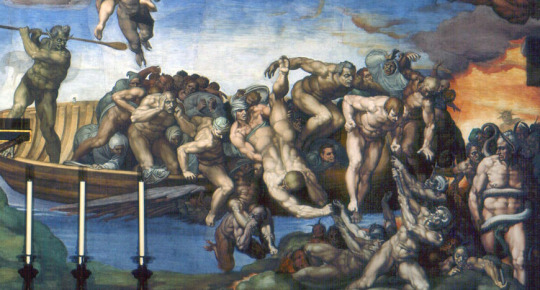
Scene from Michelangelo's Last Judgment, Sistine Chapel altar wall fresco, 1534–41 (featuring buff, naked, fucked up little guys)
The historical evidence that we have for the clothing of ancient Israel is spotty to nonexistent. To my memory, there are no real descriptions of clothing in the Old Testament aside from the instructions for priestly garb. (Note that I'm using "Old Testament" simply because Good Omens is based on a Christian interpretation of religion) None of the art from the period and surrounding time/geographic region, of which there is very very little surviving, depicts clothing anything like what we see in this episode either.
And then it fucking hits me.

It fucking hits me like a sack of bricks.

Weirdly specific Children's bible that stirred up childhood memories so I stole a photo from Amazon; published in 1972
We had this one as a kid, as well as several others, and THAT my friends is what Bildad the Shuhite reminds me of. Modern illustrations of bible stories, especially those used in children's materials. Now Christians are god-awful about giving credit for art, so please forgive me when these don't have sources.

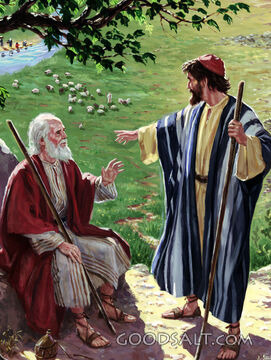
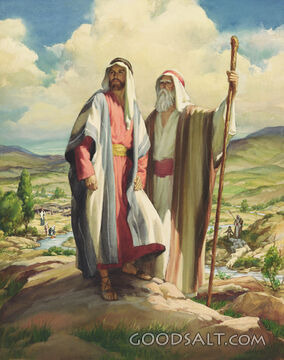
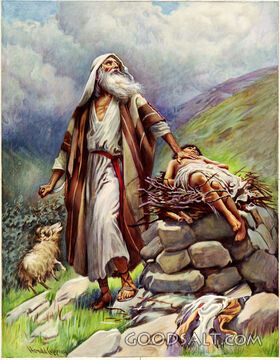
Goodsalt.com has a lot of this stuff labeled as 'religious stock imagery'
This is why the style felt so familiar yet unplaceable: I grew up expecting this as the default outfit for bible stories. If you grew up christian, you're probably at least a bit familiar with this weirdly specific style of art. (Side note: if you have any idea where it came from please let me know, but I can't find any older styles of religious art like it. Anything pre-20th century harkens more to Renaissance style than anything, which in turn is a refresh on Medieval) This is, more than anything, in fact best described as religious stock imagery. It bears a lot of resemblance to clothing worn still in areas thereabout the historical region where this takes place, but it has a distinctive flair that the costume is definitely emulating.

The stripes and colors both feel deeply reminiscent of that art style, and it makes total sense considering this is in fact intended to have the feel of a bible story more-so than any other flashback in Good Omens has. Even the odd floofiness of his beard and hair make sense when put into this context and compared against the beards in the illustrations!
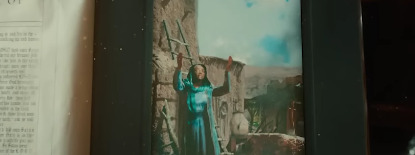
We even see that 'illustrated bible' inspiration right in front of our noses, but my brain didn't even process that because again, this art style is so pervasive it doesn't feel out of the ordinary. It was everywhere in the church I grew up in: posters on the walls in the children's wing, in our bibles and our coloring sheets, all that jazz.
The cheery bright colors, which certainly would not be available as textile dyes for another almost 4500 years, add a definite stylistic flair that makes this not only inspired by modern imaginations, but historically impossible. This of course contributes to the larger theory of how the costumes betray the unreliable narrator which I explore in this post and will almost certainly expand on when the impulse strikes me. The angels can be excused as miraculous, but this is definitive proof that what's happening here is at least in part fictitious, and more importantly for our analysis, that its heavily influenced by MODERN biblical stylization.
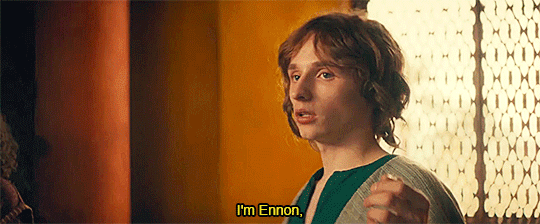
Those reds and yellows would have been available sooner, though not 2500 bc soon, but that shade of blue wouldn't be achieved until the industrial revolution and the invention of synthetic dyes in the 19th century. It is, however, very popular in biblical illustrations.
And so, friends, lovers, countrymen, we come to everyone's favorite part. What does this MEAN?

When we talked about Aziraphale and his Renaissance-angel-drag-queen era, the biggest emphasis was on the accentuation of his angelicism and holy glory. He's set apart from the humans in a way we've never really seen the angels before, and he also fits in with the other angels in heaven, who are also dressed ostentatiously to the nines. Crowley, on the other hand, does not have his demonic nature highlighted but downplayed. Instead, he fits in among the humans *almost* flawlessly.
Aside from his incredibly amazing and goofy glasses, which I think are an obvious anachronism of memory, he's dressed in pretty much the exact style as the human people around him, a style hugely shaped by latter 20th century aesthetics of biblical times. From a storytelling perspective, it makes total sense for Crowley to be fitting in among the humans, since he's sympathizing with them and even passing himself off as a human midwife/cobbler right under the angels' noses. He even takes a human name!
From a meta perspective, the modernity of the stylings tells us that whoever is narrating is having their memories shaped by somewhat recent events. However much is true remains under question, and there's tons of fascinating time-fuck theorizing to go around, but whatever is being remembered here is being re-evaluated through the lens of the last fifty or so years max, a mere blink in the eye for our angel/demon duo.

Whether it's the not-pocalypse, the arrival of Gabriel, or something that happened we haven't seen yet, SOMETHING has caused our narrator to reshape these memories recently. The overall character arc of Season 2 belongs to Aziraphale, as he struggles with himself to bring to terms the part of him that sees his own good as an extension of his being an angel and the part of him that can see how awful heaven is, so I think the importance of Crowley being more human than ever while he is more separated from than ever plays a big role in the story we're being told and that will hopefully carry over into season 3.
#good omens costumes#good omens meta#costume design#good omens analysis#good omens#ineffable husbands#good omens 2#bildaddy#bildad the shuhite#art history
185 notes
·
View notes
Text

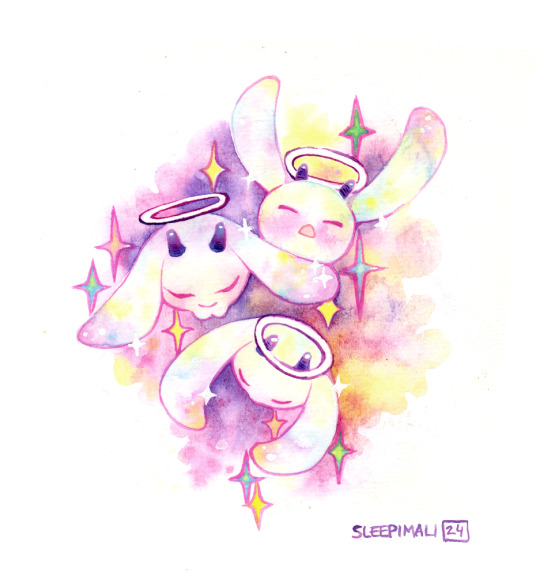

Hello hello, I am returning with some more lore from my comic universe :)
If you want to get these as an A5 print and sticker set, you can grab them from my Patreon (Professional Napper or Big Sleepy tier) until the end of February, CET :) But also, as always feel free to just read the lore <3
Dawn Dreamers lore:
A dawn dreamer is a silly looking being that appears in spirit form and has features of both angels and demons, while having the grace of neither. Such is the life of a blobby being.
Other traits of their forms are that they use their ears as wings to fly, and that they give off a strange glimmer as they float through the sky. They can be small as a golf ball or large as a horse, and they also never open their eyes as they seem to be perpetually asleep.
Reportedly, they make a bunch of cute noises as they dream too.
There is actually very little known about these beings. They appear only at dawn and only in front of people who have been going through a difficult time, but whose fortunes are now taking a turn for the better, as though to signal a new beginning.
Due to this, as well as the fact that they cannot be photographed, people have had a very different image of what they look like in their minds. Given the symbolism they have in folk tales, the general consensus is that they probably have a poetic appearance; in fact drawings and paintings of them have been widely disregarded as people simply wouldn’t believe such a silly-looking being could have such a profound meaning for them.
But when you see them, you understand. The feeling they give off when you see them is that of the first laughter after a long period of not smiling – suddenly you remember there is joy in this world and it makes your burdens seem to not be quite as heavy anymore. They're just silly little things, and life doesn't have to be that serious. Things aren’t fixed yet, but you’re on the right track. And you feel more resilient and hopeful.
The little knowledge we do have on the dawn dreamers unfortunately come from the most fickle and unreliable source of them all; gods. Gods are the only being with the power to cross the boundaries of different worlds, but they are also unfortunately known to rarely interact a whole lot with people in the mortal realm, and a fair few of them are known for making up tales for the fun of it since they’re perpetually bored. So how much of that information is to be trusted isn’t entirely sure.
However, it has been said that our realm actually is the place where dawn dreamers go when they have a good dream – hence why they appear in spirit form only. It has also been said that they have their own society and lives in their own world, not all that different from ours.
As a final anecdote, according to rumours, there once was a person who pursued and attained godhood for the sole reason of gaining the ability to traverse the boundaries of worlds just so they could cuddle a dawn dreamer. Which honestly is quite the feat when you realise attaining godhood is a tremendously difficult task, and yet the effort you’d have to put in pales in comparison to that of finding the right world among an infinity of them. It wouldn’t be all that strange if they were still searching even after centuries passed.
#ditd lore#original work lore#original creature#fantasy art#cute art#patreon artist#artists on tumblr#long post#watercolor artist#watercolor
80 notes
·
View notes
Note
I really appreciate your continued emphasis on people being free to enjoy canon and fanon as they want while providing accurate canon information! All the asks and PSAs you've shared on that recently reminded me of a fic where sj actually WAS innocent, even wrt abuse. They had to make an a/n how it was their spin deviant from canon so it'd be great if they could stop getting nasty messages pls. I just think we should all foster a nicer fandom environment, so I love what you're doing~!
Yeah, I personally might be a book-canon purist, but I can certainly recognize that not everyone feels the same way-- and at the end of the day, it is fiction, what people want to do with canon and fanon is up to them and really has little to do with them as a person. I hold authorial intent in really high regard, but no need to bully those who don't, and who want to rearrange things.
Of course, for something like you mention, I would advise using some kind of tag to indicate that it's off-script. Especially since SJ's abuse of LBH is an integral part of the story the novel is telling, changing things like that changes the entire tone of things.
If a fic where the characters are intentionally OOC gets popular, then people will inevitably start going to that fic's portrayal and mixing that up with canon details (this is, probably, why there is so much apologism and denial of SJ's canonical abuse of LBH in this fandom, though it certainly wouldn't be the specific fic you're referencing alone and is probably a combination of many different factors). I personally don't like portrayals like this, but if a writer is changing it for their story, then who am I to judge or harrass them over it? The only issue comes when it spills over into the wider fandom perception, and you have people swearing left and right that SJ had nothing to do with the fake manual (he did) or didn't actually mean to abuse LBH or want him dead (he also did, and this can't just be contriubted to unreliable narrator since it comes from his own perspective in the extras). So I think an a/n at the beginning is a good idea in situations like these. If writers don't want to spoil things, just simply tag that the character is OOC compared to canon-- no need to go into specifics, and readers will know going in that the portrayal isn't meant to be a take on canon or aligning with it.
No one knows how popular their fic will become, after all, and if it gets into the wider fandom space without proper context, things like "Shen Jiu was just treating LBH normally for the time period, he wasn't abusive, LBH was just a self-obsessed person trying to demonize him" become mainstream, widely held beliefs.
Of course, this is what my blog is for, hopefully rerouting some of those ideas, pointing back to the sources where the divergence happened, so that people can see that while they may enjoy this canon-divergent depiction, that they shouldn't bring it into canon-based analysis. I think sourcing fanon is very important for this reason-- better than just saying "you're wrong" is being able to say "this is where the idea came from."
At the end of the day, a deliberately off-script, ooc portrayal should be tagged as such and AO3 provides those tags for a reason. There's nothing inherently wrong with writing characters OOC to change a story. People can write what they want! It's the writer's job to make relevant information known, and the reader's job to filter it out and just not read things they don't like. I'm so particular that I put down probably 80 percent of fics I read before I even get through the first few chapters. That's just me though! I'm a canon snob! Other people have no issues and that's fine.
As long as things aren't skewing into abuse apologism in regards to the canon-universe, there's literally no reason I can't just ignore things I don't like, and there's no reason other people can't do the same with things they don't like.
Anyway, don't harrass artists and writers in the fandom. If you feel it absolutely necessary to leave a comment in regards to an OOC character portrayal, don't be mean about it, just say something like "<Character Name> seems to be a bit OOC here, is this intentional?" but even then, it's really not necessary to come into someone else's space like that. Make your own posts, write your own fics.
There is no reason to assume malice when there are other explanations. This is hard with topics like abuse apologism, but people also need to remember that this is fiction. SJ was abusive in canon, but he's still not a real person, and if someone wants to write a version of him where he's not abusive, then that portrayal can easily be treated as a version from an alternate universe where things were different. This is not the same as saying a person in real life isn't abusive, because in this case, it's not apologism-- it's literally a different universe where the rules of the original canon don't apply. In fictional and fandom spaces, it's a lot easier and better off to just give people the benefit of the doubt.
As long as you're not claiming that his canon behavior wasn't abusive (since that's about behaviors now, and not just a fictional story), it literally doesn't matter what people write in fanfic.
Authors, tag your fics with everything you'd like your readers to be aware of, because when a reader opens up a fic they're probably expecting the characters to follow canon unless stated otherwise.
Readers, read the portrayals and stories you like. Don't read the ones you don't. If something isn't tagged correctly, and you find out you don't like it after reading, just close the fic and stop reading.
No one should ever be harassing anyone else over fandom for any reason.
#answered#psa#if it's going to be a discussion on character analysis#then people can have civil debates while providing sources#it's possible to argue without it being harassment or bullying#no need to attack people there either#but definitely no reason to just not read a fic you don't like#you know what i'll put this one in the tags#svsss#shen jiu
79 notes
·
View notes
Text
Saraqael isn't real
I wrote a piece on the source of energy for the 25 Lazari Plume. In it, I set aside the "holistic power of the duo" hypothesis, that @dee-morris actually provides a very compelling argument for, on the basis of something Saraqael said. Which means that, in order to accept @dee-morris's hypothesis, I have to explain why Saraqael is an unreliable source, and why no one around her seems to realize that except one demon in particular.
Let's get started.
The Hypothesis
When Aziraphale and Crowley did their body swap at the end of Season 1, it generated a lot of energy, because it is the same miracle that they perform to hide Gabriel.

Word of God has also stated that this took "Big Miracle Energy"
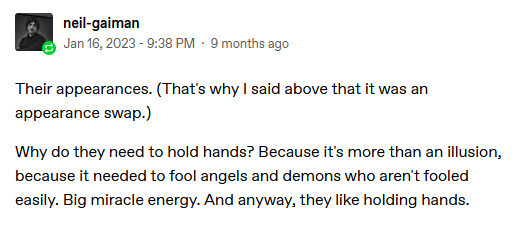
Why I Set it Aside
I ignored this because Neil is a lying liar and I treat him as such.
I also relied heavily on the disbelief from Saraqael that Aziraphale would be capable of casting such a miracle.
Why I Should Not Have Set it Aside
The Metatron makes a statement at the end of S2E6 about the de facto partnership between Crowley and Aziraphale. This implies that he knows about the body-swap that occurs in S1E6, since we know that Michael started surveilling them long before that. Also, a "big energy" miracle should have set off alarms in Heaven. Just because we didn't witness it doesn't mean it didn't happen, and that it didn't put all of Heaven on alert that they had collaborated in this way.
What that says about Saraqael
But Saraqael may not be a reliable source of information because she didn't exist at the time that this happened.
Who Crowley "Doesn't Remember"
(and we should not misconstrue this as "has forgotten, which we were doing)


Saraqael and Furfur are both characters introduced in Season 2 that have memories of significant events with Crowley, but Crowley doesn't remember them. There are two explanations for this.
Crowley's memory was wiped and he hasn't retrieved these particular memories.
These beings were created post-facto with false memories that Crowley doesn't have because they never actually happened.
Why doesn't anyone else notice a problem?
Everyone else acts like Furfur and Saraqael belong because they may have gained new (false/implanted) memories when these beings were created. But Crowley has more control over his memories than other beings do. He claws back memories that were lost. Who's to say that this doesn't also make him immune from receiving implanted, false memories?
Crowley's understanding of this situation
Crowley doesn't know that some beings are new constructs; he thinks he's forgotten them because of his memory loss. I infer this because he owns that he doesn't remember them; if he knew that they were constructs and that he's supposed to have implanted memories, he would probably pretend to have those memories. This might be a stretch but it's my thought on the matter.
Who Else is a Construct?
fucking Maggie that's who
Please read "What's Up with Maggie?" by @iammyownproblematicfave through the lens of her being completely fake with implanted memories that are also implanted into others, like Nina. Memories that don't correspond with reality, like having been at the shop for [forty?] years and not noticing that Mr. Fell hasn't aged a day.
#good omens#good omens 2#good omens meta#crowley#aziraphale#metatron#saraqael#furfur#good omens maggie
81 notes
·
View notes
Text
Ok, I don't know exactly where this is going but I can't stop thinking about the fact we got the Crowley/Aziraphale meet-cute in the opening of season 2 and the way the layers of storytelling utilised the same literary conventions our fave demon and angel were inspired by when trying and get Nina and Maggie together.
We get to see Aziraphale and Crowley's understanding of romance and love, or more importantly, their understanding of what they think it should look like, through their misguided set up attempts, and this primarily reveals to us, a) they're both hopeless romantics and b) they have no idea about the subtle and real indicators of love or a burgeoning relationship between two people. But that's ok, they're celestials whose only reference points are books, films and each other (the most unreliable sources of all, exhibit a: Aziraphale telling Crowley Maggie has a 'pash' on Nina).
You know who does know about those subtle indictors of love and blossoming romance? The very human people watching the show. And so throughout the season we witness a series of tropes and moments that indicate Aziraphale and Crowley are indeed the ones whose love story is unfolding, and as viewers we are drawn into certain conventions that we are conditioned to assume will play out and resolve in a particular way. The nebulae creating meet-cute, the ongoing forbidden relationship that continues to build, the friends to lovers dynamic through the centuries and of course, the comfortable and cosy present-day lives, with 'our car' and 'our bookshop' and drinks at pubs and a relatively open existence together.
With each insight into the past, we catch the cues that indicate the developing affection, trust and care between the two; the way Aziraphale looks at Crowley when he realises the crows are goats, the way Aziraphale and Crowley cover for each other with Job's children, the bullet catch ('nough said) and the drinking of wine afterwards. When humans engage with literature or film, we understand the subtext of such moments, something angels and demons seem to miss as they focus on the overt gestures of romance and love in storytelling as confirmation of its existence.
In the present day, its the perching on the same chair, Crowley knowing the angel's different tones, the way they pop into the room at the back of the shop for private conversations, Aziraphale grabbing Crowley's arm, Crowley answering the bookshop phone with, 'Fell's bookshop, we probably don't have what you're looking for and we wouldn't sell it to you anyway'. While these are only a few of the prompts we are given, our brains piece together this storytelling along with the body language and expressions throughout, understand that all these aspects combined flag a romantic relationship developing and so we are swept up in the love story.
The way the flashbacks are interwoven with the present day is disorientating, because we are simultaneously seeing the sweetness and complexity of the developing relationship over time while in the present, Aziraphale and Crowley begin to fall out of step. Yes it starts with Gabriel's arrival and Crowley vs. Aziraphale's reactions and responses (there are many excellent posts that discuss this in great detail), but any misalignment isn't happening all at once, it in itself is like a dance; they move apart but then move together again, as an audience we think oh no, tension! oh good, that's resolved! However the neat trick here is that with each move apart as the individual characters undertake their own journey within the story, the distance grows a little greater. Meanwhile the interactions between the two characters do not necessarily shift dramatically and the set up through the storytelling still suggests that any threats are ones they will face together and it will be ok in the end.
Even the ball, I wanted to be all *swoon* and swept up. Everything that was happening on my screen told my brain that it should be feeling excited and full of all the feelings of seeing these characters finally starting to make a move, like I should be feeling giddy like Aziraphale seems to be because, just like the attendees at the ball and the very literature that inspired it, there's the music and the soft lighting and the smitten little angel face. But it's all those things and also none of those things, because as has been so brilliantly pointed out in this insight, this is all juxtaposed with the demon invasion happening outside and Crowley's futile attempts to convey the seriousness of the situation to Aziraphale. Crowley is doing the movements but he's not part of their dance in that moment, the dance they've been doing for centuries, and as a viewer it feels off kilter.
But we've seen their story unfold, we know that the love and the relationship is all there, and once again we see Aziraphale and Crowley fend off Heaven and Hell, both taking individual risks to do so and protect each other. Heck, we see that an angel and demon can put their differences aside and disapparate off into the universe together, our brains are poised, but also wary at this point because it can't be this easy, can it?
Crowley has to have it explained to him why their plan didn't work, Maggie and Nina sit him down to do so, and in that moment we are also being told that you can't just be pushed together, the timing has to be right (cue small alarm ringing in the back of my head). Despite this, and we know Metatron is never good news, we, as viewers, are held precariously in the hand of the storyteller as Crowley's emotional declaration clashes with Aziraphale's news in a way that side steps the expectations that have been building throughout the season. The final moment of Aziraphale leaving hits SO hard because the expectations many of the storytelling conventions set in motion are subverted at the very last minute. And it's absolutely brilliant.
Just to be clear, I know there is far more complexity in the show, the characters and the storytelling, and tbh I don't even know if any of this rambling makes sense. But the fact is, my tiny mind is just awestruck at the layers of meta in the way our no.1 angel and demon are calling on literary conventions to try to make two people fall in love, while we're watching these conventions in action showing us two people falling in love. The result?
The most incredible tension, yes between the characters and their sudden divergence (which was actually not so sudden after all, we were just a bit distracted), but also tension in the storytelling as the duality of the love story and the individual character stories collide head first in that final moment and we are left trying to untangle our expectations from the reality of what has unfolded.
(that last paragraph should probably have been the whole post honestly)
#good omens#good omens meta#aziraphale#crowley#neil gaiman#this is a very rambly ramble#and it may not make sense outside my sleep deprivation#but I needed to get it out#good omens spoilers
109 notes
·
View notes
Text
Exploring the symbolism of the Tsubaki / Camellia and Gojo Satoru

Cover of vol. 26 shows us the beautiful image of Gojo on a snowy day; his breath tints white - he is surrounded by what we can interpret as Camellias in full bloom, location unknown, but we surmise it is sometime between December - March (depending on source of information - usually late winter to early spring) where they tend to flower despite the cold.
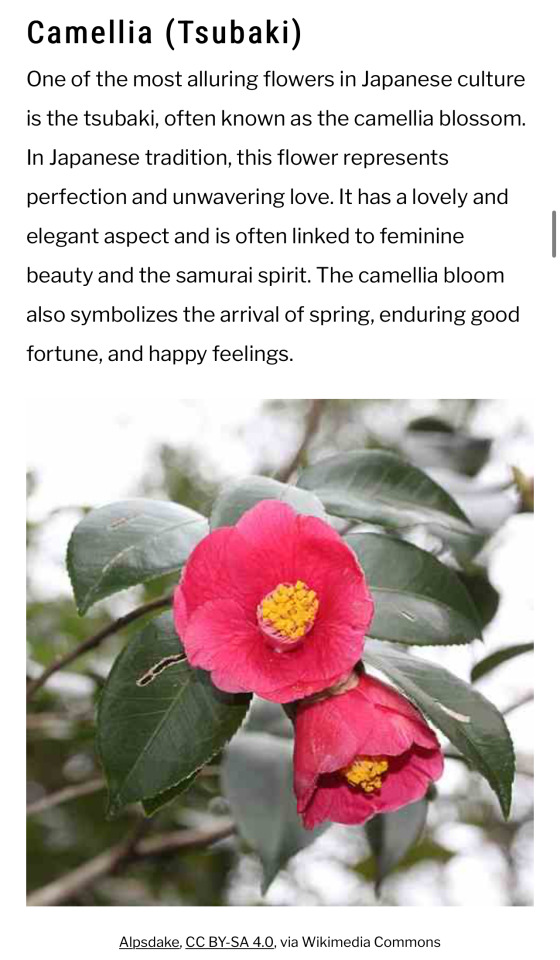
More under the cut. Please be warned: This post is littered with information, and you may interpret it freely, however you wish.
Just be mindful that I almost always have a Satosugu lens is on. Headcannon and overall reaching is all on me!
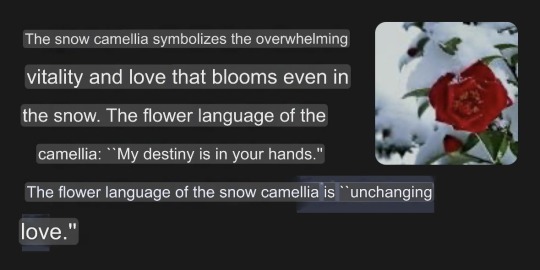
The setting is simple but poetic. It’s snowing and Gojo is standing looking at us. It’s blue all around him; a crisp winter’s day. Gojo’s birthday reflects the heaviest snowfall (refer to character birthday chart below), so in addition to flower symbolism is potentially the symbolism of dates. We know Gege is deliberate like that. Is this headcannon? You can decide!
The plant looks really beautiful amidst the snowfall. Their leaves are evergreen and lush, so looking even at the foliage, the plant seemingly being taller than Gojo as painted by Gege, it would appear to be more like the Camellia than Peonies. Very much like what tends be be planted at a Shinto / Buddhist temple gardens.
And what does it mean then? Let’s keep going:

Those pictures above are the red varieties, but they can appear very different - coming in different colours and the way the petals are arranged, colour of the middle, etc. varies. Upon closer inspection, we see two types pictured on the cover.
Behind Gojo’s head seems to be a flower in a lighter shade of pink, and akin to a lotus camellia. I’d say it’s stylistic and has symbolic intentions, and you can google to look into what others have to say about it. Generally, it’s around being enlightened, freedom and purity. All fitting with Gojo’s life (his fate at birth) and death.
Before I continue, I must address the question: is it possibly any other type of flower? Well, sure. You’re welcome to interpret it that way, it’s a drawing after all. However, based on how tall the plant is, the thickness of the branches the leaves are attached to, as well as the blossoms, it seems more like a Camellia plant to me.
Moreover, I cannot ignore the inference from the conversation we see him have with Nanami in chapter 236 - that his death was fitting, and his reflections of it were considered “old fashioned” like a commanding officer’s (bushou) view of a swift and noble death. When we consider the symbolism of the flower and the fact that it is a late-winter blooming plant... it fits.
It also fits in with Gojo’s beliefs in his conversation with Megumi when he was alive. To die victoriously because he gave it his all, in an individual sport, and also died thinking he had an ace up his sleeve.
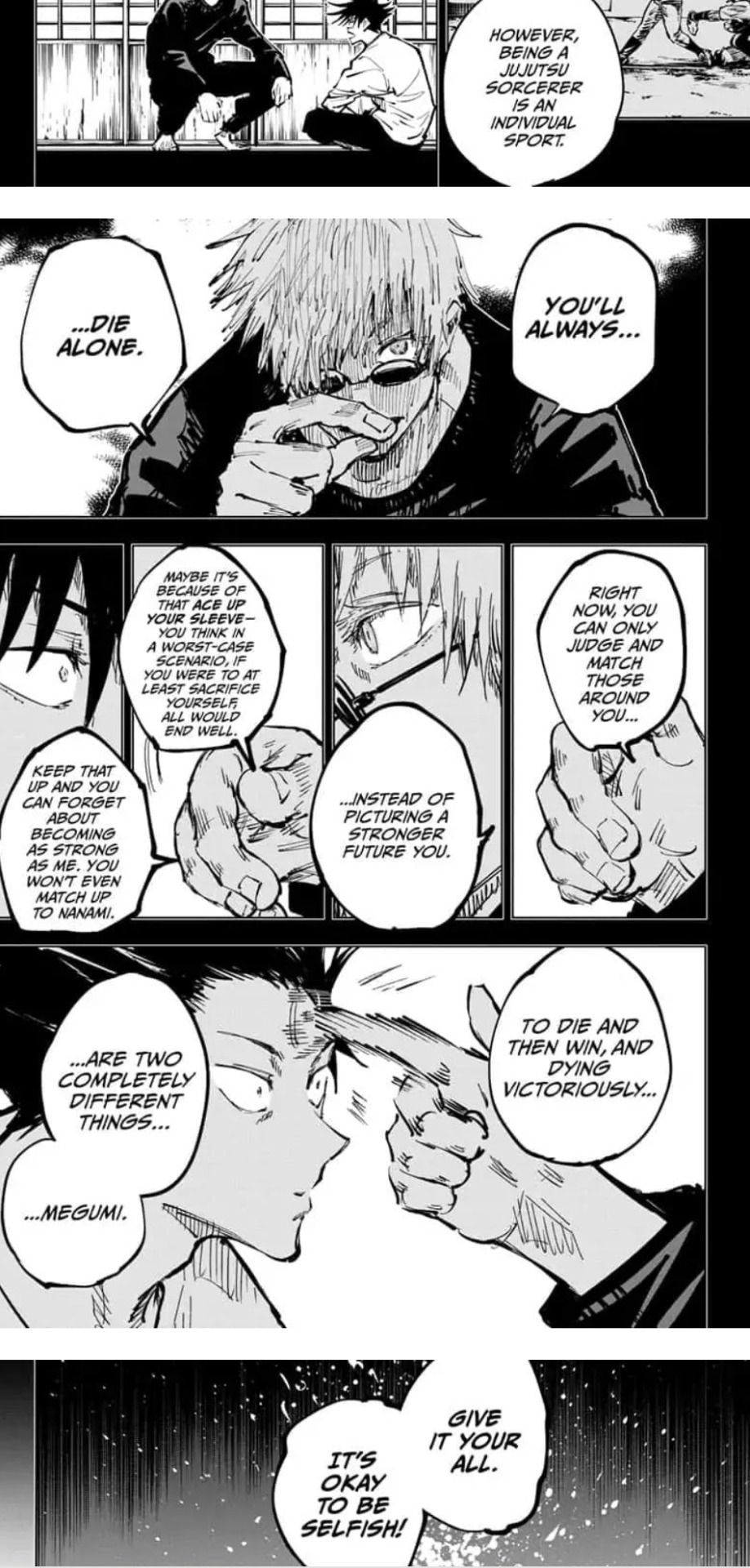
Just to add some of my interpretation in here: He died trying to reach Megumi as well as fulfilling his ideals, despite not winning. He was satisfied.
As in my previous post on ch. 236 (see: https://www.tumblr.com/lxmelle/745848828838756352/thoughtsponderingsmusings-on-ch-236-about-gojo I feel that each expression drawn was a decision made, and can sometimes be absolutely deliberate in how it tries to convey something - so, it can be very telling.
Gege is a huge fan of using repetition to foreshadow something or draw connections to emphasise a point or relationships.
I don’t think it’s headcanon when we know as a reader that gojo is an unreliable narrator. We would be doing him a disservice. He can “whale on Megumi” because he has killed his best friend before. It is but "fighting talk".
He could do it, but with difficulty, as we know it was horrific for Gojo to have done to Geto and he put it off for as long as he could, nevermind the expense to human lives (although I doubt Geto killed indiscriminately too much as it’d draw too much attention - he probably hunted curses using those weekly “Wednesday special” shows Gege talked about in the character book as well as within his temple through visitors).
We see Gojo’s eyebrow furrow when he noticed Megumi had been taken over by Sukuna upon his release from prison realm. In battle, he also scans Sukuna for Megumi’s soul.
I digress. Sorry.
Gojo did fight with everything he had - every ounce of power - forcing his brain into overdrive… in vol 26, there are images gege drew to illustrate just how overextended he was with a bleeding brain.
Gojo absolutely surpassed his ancestors and achieved so many unprecedented things within that one battle - and died in a sudden world slash, slicing through him. It wasn't a fair fight to begin with, we know that. Sukuna used Megumi to tank UV hits and had a 3v1 setup going.
We should all be proud of his performance. He put himself on the line; and even Sukuna was impressed. He had an ace up his sleeve but didn't sacrifice himself - he burned brightest and it was his all.
Sukuna can have the title because he's practically sold his whole entire self to be the embodiment of a curse. Gojo died to a calamity. A calamity with decades of fighting experience, whereas Gojo was a mere baby compared to him, and yet already achieved so much, and his legacy will continue.
The suddenness of his passing shocked us all. This is also symbolic of the Camellia, where in the negative, it can imply a sudden death, by beheading. In the positive, it means unity - a love tied together by the way the flower falls whole.
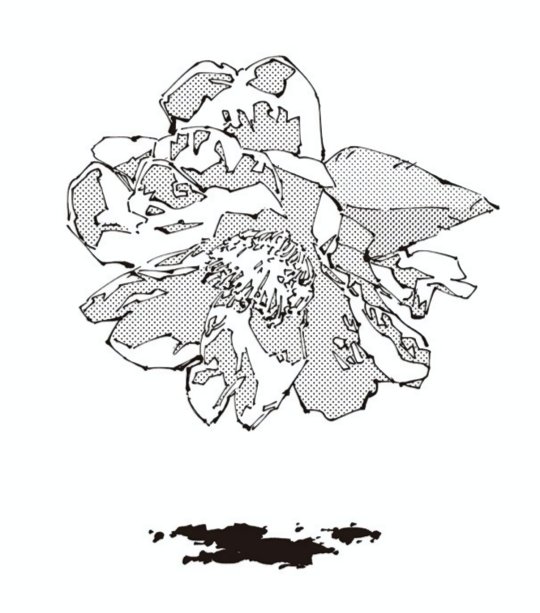
Gojo... was killed in that way. Being somewhat beheaded. Bisected. The image above is from vol 26. Gojo died a noble death fighting with his all, in battle.
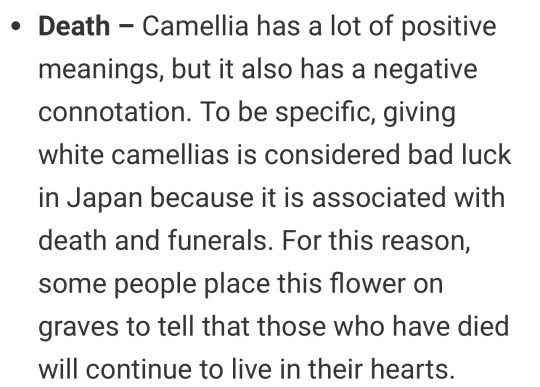
Nevertheless, one can imagine Gojo seems to have risen in spirit on this snowy day as his body has been left behind. He is smiling at... the reader, the others left living, or... at Geto? More on the latter later, as it'll enter headcanon and shipping territory.
So if it indeed is a Camellia, there were different meanings for the Camellia based on its colour.

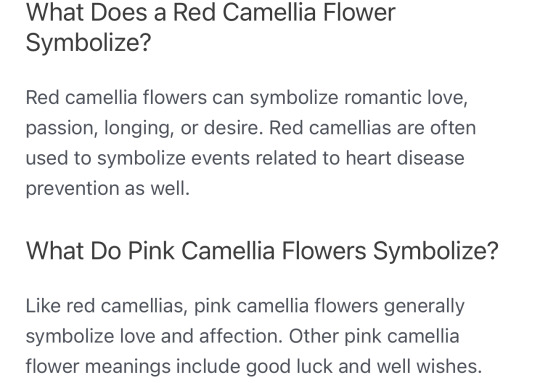
Different counties have different meanings for the blossom, but some things appear universal. Just some examples of cultural differences. Western interpretations are more around love as a theme. Since jjk is from Japan, I’ve included these to offer a more regional and diverse interpretation for this piece of writing:
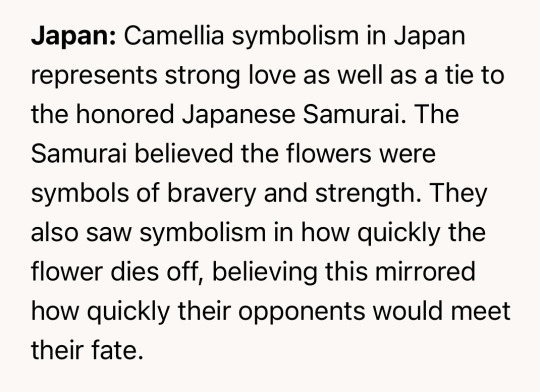
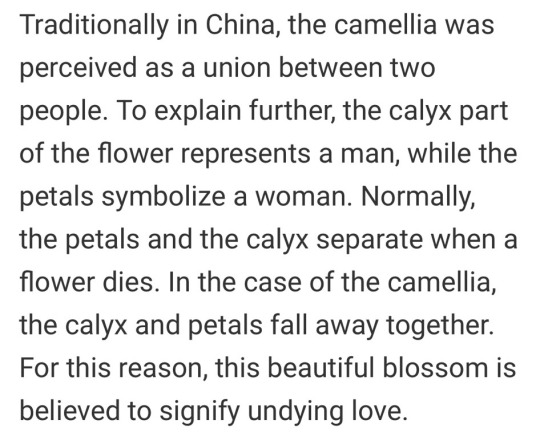

Generally speaking, the Camellia plant is admired for its entirety: its evergreen and robust leaves are hardy, in addition to its gorgeous blossoms.
We know that Gege chose pink for some reason. Gojo also smiles somewhat alike his smile in death which is a little disturbing, but may be a bit like what Geto’s body did? Or, a symbol of him actually lucid dreaming at his death and the airport scene was not real (but Gege’s approach is a bit “mystical” for this interpretation- he brought Toji back to life after all, plus all the stuff about souls and touching it etc.)
Now we take a deeper dive into the symbolism of the flower. Mind you, depending on interpretation, I may be reaching, but I honestly did not make any of this up.
I think Hanakotoba is something that Gege has an interest in, alongside playing the long game and usage of foreshadowing, mythology, religion, and popular culture). He really is a clever writer, although I’m aware opinions vary as of late due to various reasons.
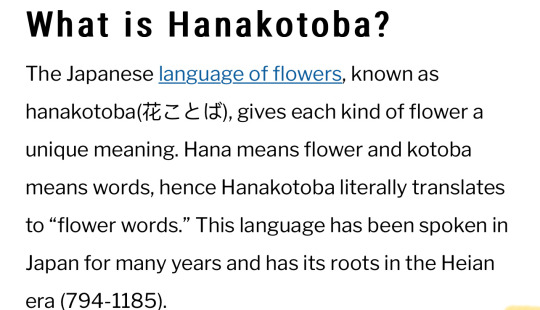
And Camellias...?

Outside of hanakotoba, culturally, the Camellia also bears a potentially ominous / inauspicious meaning. To expand further and echo what’s already been said above:
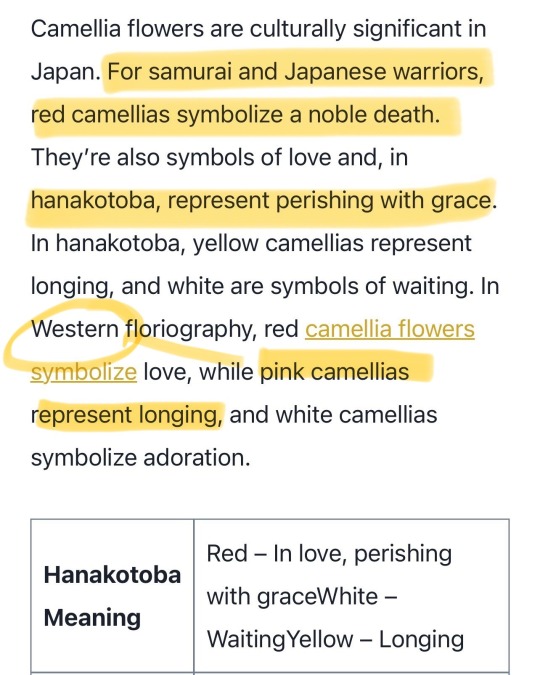
Plus, the Western interpretation is quite similar, isn’t it?
And Gege really, again, could have gone for a different colour and it would still be imbued with impressively deep meaning. Red, white, but for whatever reason, he opted for pink - longing. Is he longed for? Well: Yes! By us readers and his students. Does he long for anyone? Hrmmm… let’s look at the clues as we go along. *resists shipping mode*
Another source has this to add about what pink Camellia flowers are in flower language...
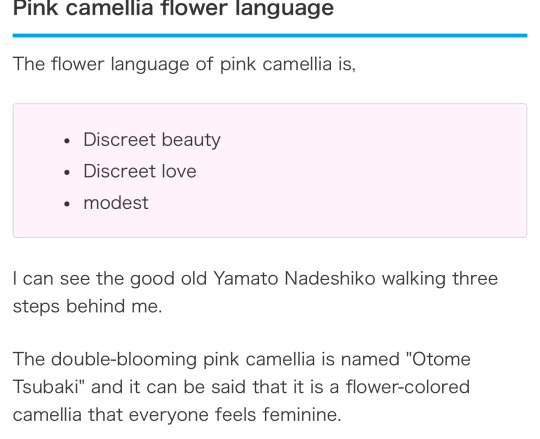
What about the history of the Camellia?

The camellia was named as a priest’s helper. Seriously you cannot make this up. I lol’ed at this. It HAS to be a coincidence right?
*resists shipping and reaching* ha ha!!
Moving on…
And what does religion have to say about the symbolism of the Camellia?

Ah yes , indeed very fitting and auspicious signs for our beloved Gojo. Freedom, new beginnings, a triumphant victory for his spiritual self.
Shintoism:
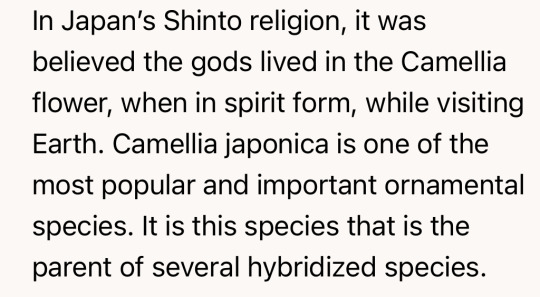
This, I find it intriguing how it can also explain how Gojo was amongst flowers on the cover, and then also at the airport. Like: where are you, really? If you want to read more, here is the link: https://justaboutjapan.com/what-happens-after-death-in-shinto-understanding-the-japanese-afterlife/
Certainly interesting ; I find it poignant and spiritual in interpretation of the world. Like the concept of continuing bonds in Grief work.
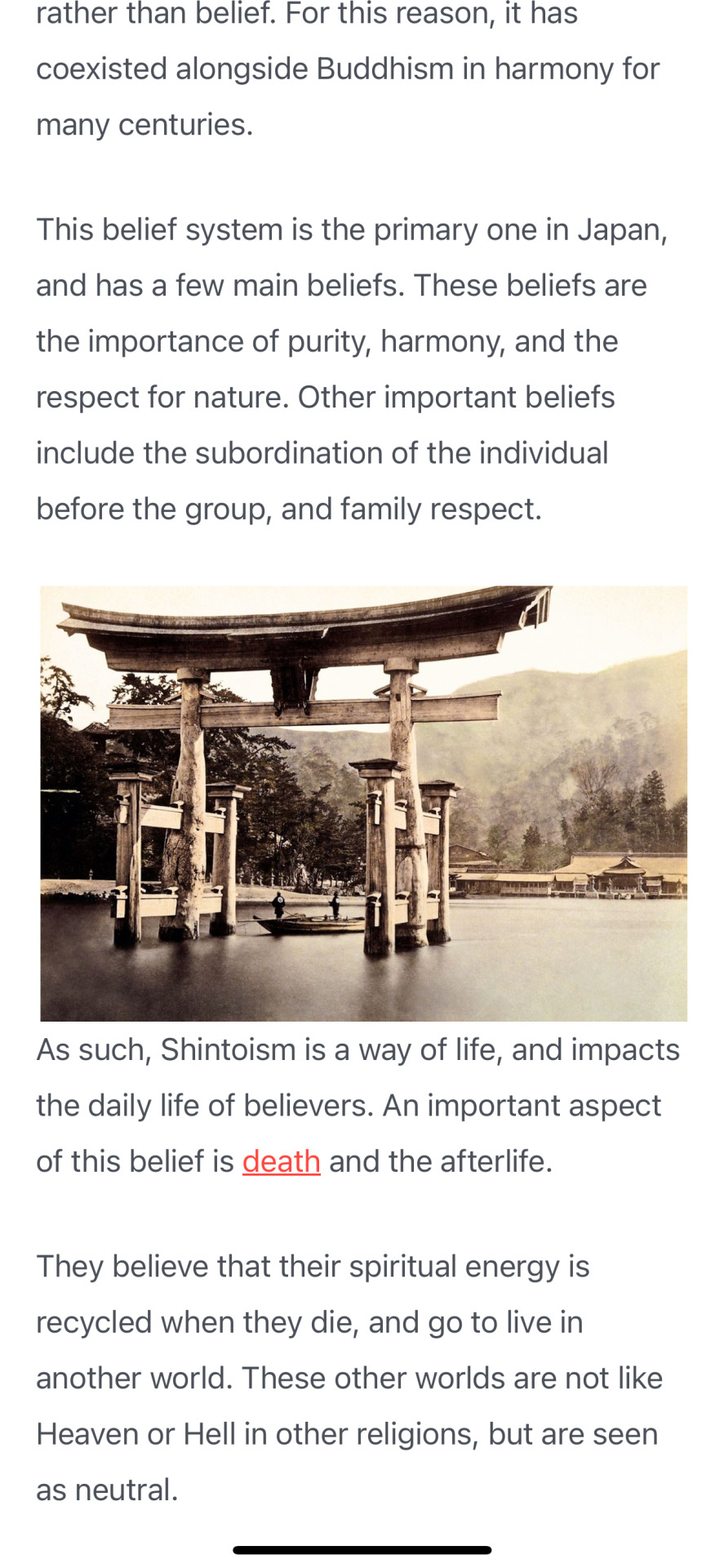

Make what you will of the information! I have no idea where the airport is or where they are headed (or if they even head out to the same place… I hope they do. I guess that’s what my fanfics are for, lol).
Now. That’s already quite a bit of information, right? But you know... it doesn’t stop there.
The Camellia represents the birth flower for Geto Suguru. (And yes I checked, it is nobody else’s).


Is it coincidental? Maybe?
Yesssss we are in Satosugu shipping territory! Take it with a pinch of salt. *shrug* I’m not really going to make any apologies for my insanity brainrot.
What about other flowers, if I were to stretch it a little and bring the lotus symbology into the picture? Referring back to chapter 236 and how Gojo himself reflected on being a creature with a line drawn, and the lotuses.

Ah, excuse me!! Chastity? Purity? Being far from the one he loves?! Stop right there, Gege!!! *slaps self* okay, I’m calm now.
Back onto Camellias. Turning to the West now, which has reached international shores for decades: The story, the Lady of Camille portrays two young people in a romance doomed, within a punishing culture, marked by longing, and separated by death. It is also not without controversy, as the woman was a prostitute, but the writer depicts her kindly, as if her redemption was due to her ability to love alone. Sounds familiar?
Again, I’m not making this up. This is the cover of the novel.
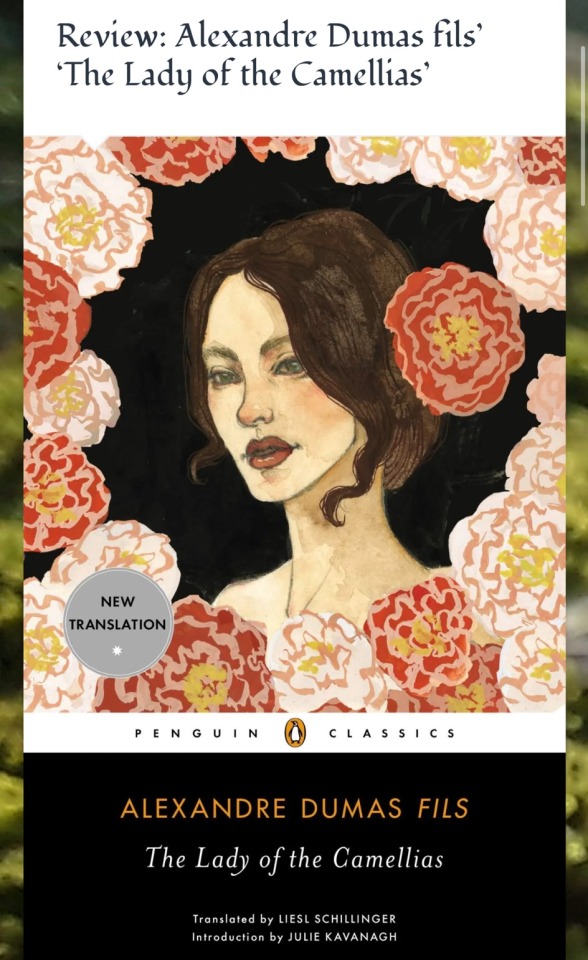
And some excerpts of the novel (you can google this as I have, if you wish) that you can be free to interpret based on your own understanding:

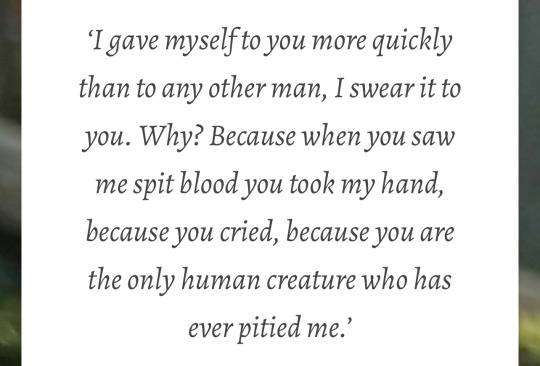

The image that comes to mind is their reunion on the school grounds in jjk 0 where they stare at each other and then Geto fakes this cheerful “long time no see, Satoru!” And Gojo is just icy, lol.
The above would seem to apply well to Gojo as well, for various reasons, namely how he lived his life, what he longed for, and his “enlightenment” where it gave birth to his supremacy and untouchability (distance, isolation) from others. Denoting him to almost being a “creature” due to being unable to relate to the limitations that plague sorcerer and humans.
It’s Gege’s favourite type of romance. His brief journey into BL had similar themes if I’m not mistaken. It may very well mean nothing too, of course. It is just information.
One of the sites I visited while researching Camellia’s in Japan, had referred to this novel and I was intrigued by why. To me it’s not reaching terribly far to find the doomed romance theme - it’s everywhere if you look for it.
But you know : to recognise it means that you equally recognise it is a kind of a romance. At the very least a form of love / connection.
Similarly, it’s only a breakup if they were ever an item of sorts.
And, Shoko was there but “would never love either of them”... inferring that love was the only exclusive thing between them that they alone shared, that she could not give to alleviate their loneliness.
Anyway, I’m a hopeless “satosugu kaisen” shipper and I admit it. Sorry if that’s not what you’re here for. It is nevertheless quite interesting to see what one can dig up; sometimes they’re highly interesting coincidences:
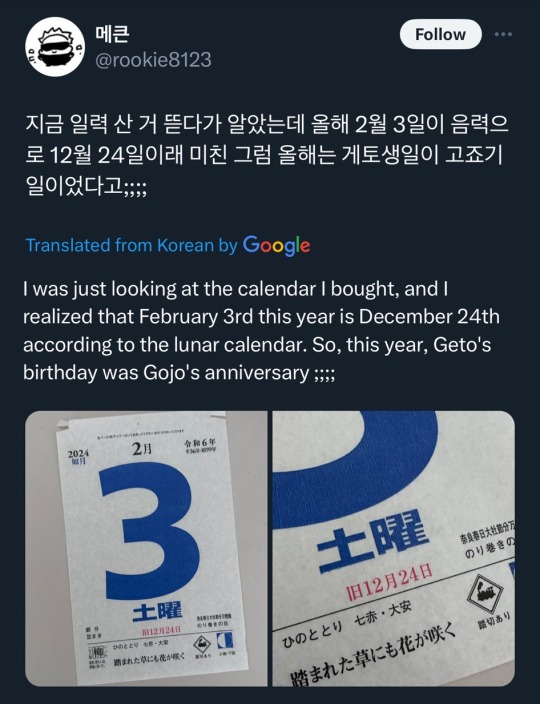
Like this one. It bloody has to be, right? Lol!
That’s it from me 😉 the rest is just indulgences:
Love the cover of vol 26 or hate it? Either way, it’s here to stay...
The Camellias spoke volumes (pun intended), in terms of symbolism for how he lived, what he shouldered, how he suffered, what he stood for, and fought for up till the very end. Honourable and honourably, even if there may be those who didn’t think so. We all fight for different reasons after all. It’s ok.
Our much-loved Gojo Satoru standing proud, smiling with his eyes, looking as soft as ever - with that fresh face, sporting his handsome smile (that borders on a smirk) playing on his lips, a little dimple appearing on his cheek. He looks self-assured, as if he were smiling a warm greeting, or imparting heartfelt farewell.
And I want to maybe interject here to return to a point about Gojo thinking about Geto when his breath tinged white one year ago.

In my previous post (purely indulgent)
I pointed out that gojo has been the only one who stylistically has been drawn with his breath tinting white, aside from uraume whose skills have something to do with ice. It seems to tie in with the death of Geto, which was just one year prior. And he was thinking about said person, in his conversation with Yuta.
It’s just a connection, nothing more and nothing less. And Gege didn’t have to, but Gojo was then shown to be reunited with Geto right upon his death. Parallel with emerging from prison realm and going to pseudo-Geto? It is also fitting that they die on the same day, one year apart, and Geto’s body that was inhabited by Kenjaku, was also released through Yuta and Takaba, not long after Gojo died.
And then the flower being Geto's birthdate flower? It's quite a few coincidences, even if any one wasn't deliberate. The anime goes as far as using Osmanthus flowers to depict their “first ‘love’” or blue spring. Geto’s name having “summer” in it, birthday being the start of spring (refer to chart above) and it being generally accepted that they’re each other’s “one and only (best friend)”. To me, it does seem like Geto represents the spring for Gojo’s deep winter.
Gojo wasn’t afraid of loving someone morally reprehensible... he wasn’t afraid of being stained. His sense of self was arguably either too hollow or too firm (firmly hollow?) for it to really matter. Just like his sense of responsibility - he was just searching for who Gojo Satoru was within the role as the strongest. I can see why the symbolism of longing and love are there in representation of flower language for Gojo, and scattered deeply within the series, as it is tied to Geto - his first and last blue spring.
There are countless other points of symbolism but I’ll end it here! Apologies if anything is innacurate - do leave a comment to correct me if you can.
Thanks for reading and drop me a comment with any thoughts, or hit <3 if you found it interesting!
#jujutsu kaisen analysis#probably needs more editing#jujutsu kaisen meta#satosugu#stsg#jujutsu kaisen#jjk analysis#jjk spoilers#jjk meta#geto suguru#gojo satoru#jjk#jujutsu Kaisen vol 26#jujutsu Kaisen manga#Gojo camellias#jjk flowers#jujutsu Kaisen interpretations#gojo satoru analysis#satosugu shipping#goge gego#goge#gego#jjk volume 26#jjk vol 26#gojo meta#satoru gojo#satoru suguru#suguru geto#jjk hanakotoba
35 notes
·
View notes
Note
Okay, here's my dilemma: I love writing fanfic. I've been at it for many years and (likely due to all that passionate *practice*), people seem to consider me "talented." This has filled me with immense shame, because now I feel I should probably attempt to write "real" fiction. But I don't wannaaaa.
Are we obligated to develop every skill to its highest potential? Am I wasting my life just writing about superheroes? My brain knows the answers to these questions but my heart doesn't. Please help, Dear Abby, SOS, etc.
Te absolvo, anon! OMG, you are allowed to have fun!
Also--fanfic IS "real fiction." Ask your readers! :D
Also also more people will likely read your fanfiction than will read your "real" fiction, if by "real" fiction you mean anything like "literary" fiction. Look up the publication numbers on literary fiction lol. (Hint: There's a reason that many literary writers teach creative writing at universities.)
Also you will have more artistic control and ability to "develop your skills to the highest potential" writing fanfiction than you will writing commercial fiction because commercial fiction has requirements that aren't, per se, artistic. (Genre constraints, editorial requirements, differentiation from competition, multi-book universe to capitalize on branding, etc.)
Which is why writing for money is work.
All that said, if you 're looking for more work, and you're talented with words, yes, you should absolutely consider writing as a job. But don't kid yourself: you're looking for a job. If you already have a job, consider whether or not you want two jobs / more work in your life. If you don't have a job, ask yourself if this is the sort of job you want (which--imo writing fiction is quite nerve-wracking, because unsteady/unreliable financially unless you're a real machine of a writer. If you have other sources of income/health insurance etc., this becomes a much easier proposition; you don't have to worry about losing the house, not making rent etc.)
I occasionally do write things that people pay me for, but it's a sideline from my job because I have a job that I like that is already quite engaging/exhausting and that pays my health insurance/ contributes to my retirement and so on and so forth etc. This both enables me to occasionally take on other kinds of writing as work (because yay I have health insurance!), but also limits me from doing so, because--it's work and I already have quite a lot of work in my life. *looks around at desk, cough, did I just open tumblr? yes i did*
Writing fanfic, on the other hand, is FUN. :D I have been in fandom for decades, and e.g. I deliberately for years chose to do 4 min win at a time when I HAVE a lot of work because it is NOT WORK, it is something very other than work, something that contributes to my sense of my own humanity and creativity and connects me to my friends and is about joy and making art etc. If I did not write fanfic I would have to find some other kind of hobby/pleasure/etc. Perhaps like Sherlock Holmes I would take up the violin (and not at all become a professional violinist, which I think is--yes, rather a lot of work.)
---Why I am not a violinist, by Ces, age mumblety-mumble
#why I am not a violinist#by Ces#age mumblety mumble#ps women already have so much more extra work already anyway#work is not a thing I want more of most of the time
237 notes
·
View notes
Text
Last night I saw the Great Gatsby musical. Before I went, I reread the Great Gatsby book (for the first time since 11th grade!) to get a refresher on the source material and the original story. Having the book so fresh in my mind made seeing the musical really interesting, and now I am going to do something I never thought I'd do, which is post some lengthy meta about The Great Gatsby. If you haven't seen the musical, this post may still be interesting to read, but it does contain some mild spoilers, so I leave that up to you. If you also haven't read the book, godspeed lol.
There's a lot I could talk about here when it comes to the way the book was adapted for the stage. But there's one particular thing I want to zero in on in this post, and that's the "unreliable narrator" of it all.
In the book, Nick Carraway is our narrator. He's an unreliable narrator practically by default - the idea is that he's retelling events that occurred two years prior, from memory. But even knowing that Nick is probably not reporting all events and characters with complete accuracy, it's hard to know which parts exactly are wrong, or what might have happened in reality, because even though he's an unreliable narrator, he's still the only narrator and this is the only version of events we know. We're forced to take Nick as our surrogate and take him at his word. Until the musical.
(I wondered how the show was going to deal with the fact that the story of Great Gatsby is not only told by an unreliable narrator but also by an outside perspective - generally speaking the events of the Great Gatsby aren't happening to Nick, they're just kind of happening around him. Yet he's the voice of the story, so in that way he's central to it, and I was curious how they were going to balance that fact with the fact that Gatsby is functionally the main character.
I think they struck a really good balance in the end. Nick's beginning and ending lines, lifted verbatim from his book narration, frame him clearly as the anchor of the story - I think that's the best word for it; the audience jumps from scene to scene, many but not all of which contain Nick, but we know that Nick is always going to be where the action is, or that he will at least know about it. He may not be the main character, but he's an essential character. But I digress a little bit.)
The difference between the way the story is imparted to the audience in the book versus in the musical boils down to this: in the book, Nick "plays" every character, so all their dialogue and actions, their mannerisms and the way they're described and reported, it's all informed by the beliefs Nick holds about them. Whether he means to or not, his biases paint certain characters in certain lights, and because he is our eyes and ears to the story, we have no choice but to absorb those biases.
But in the musical, every character is literally played by a different actor. Nick can only speak for himself. Nick can only tell his own parts as they happened. He may be "telling" the story, but we're watching the story. We have the benefit of an unblemished perspective on things - we can watch the events the way they actually unfold, regardless of how Nick believes or remembers they went down.
This difference - between Nick as the narrator and Nick as merely his own voice - is crucial in how the musical develops each character, some of them fairly different from how Nick described them in the book. And there's one book-to-stage change - a fairly small one, all things considered - that, to me, illustrated this difference perfectly.
There's a line towards the end of the Gatsby book. Something Nick says in narration, after his final conversation with Tom Buchanan, talking about how Tom gave away Gatsby's name and location to George Wilson (which ultimately led to Gatsby's death). Nick writes:
"I couldn’t forgive him or like him, but I saw that what he had done was, to him, entirely justified. It was all very careless and confused. They were careless people, Tom and Daisy — they smashed up things and creatures and then retreated back into their money or their vast carelessness, or whatever it was that kept them together, and let other people clean up the mess they had made…"
When I read this line in the book, I couldn't help vehemently agreeing. Screw those rich assholes! Money does corrupt! Tom and Daisy ARE careless wealthy people! It was easy to side with Nick, not only because he was the only perspective on the situation that I had, but also because he said this in internal response to a conversation with Tom, who, I think we can all agree, is a major jackass and a deeply unsympathetic character.
But in the musical, this line is spoken aloud by Nick. And he says it to Daisy, in her house, as she's packing up to skip town after Gatsby's death. In fact, he doesn't just say it; he shouts it, visibly and audibly outraged at her audacity to lead Gatsby on, ghost him, skip his funeral, and then move away to avoid the fallout. Nick is angry and highly critical of Daisy. But because we're no longer confined to his shoes, we also get to see Daisy's reaction - not as Nick remembers it, but as Daisy actually reacts. And because of that, we're able to really see, and confirm, that "Daisy is rich and careless" is not the full story.
I have to credit Eva Noblezada for a phenomenal performance (duh). Daisy in this scene is emotional, grieving, and it's clear she has been trying to contain these feelings for the sake of her husband and her own sanity. She's remorseful, not that Gatsby is gone necessarily, but that she allowed herself to entertain the fantasy of running away with him, only for it to be torn from her. She is trying to make the best of her unavoidable reality. And then Nick tears her a new one, calling her careless, accusing her of destroying things and being too rich to care.
And as I watched that scene, I was no longer wholly on Nick's side. I understood that this situation was so much more complex than Nick's chastisement acknowledged. Sure, Daisy wasn't innocent, but she also wasn't the callous rich girl Nick made her out to be. She did love Gatsby. And she also had a whole life with Tom. She had a daughter. She was a woman in the 1920s! That's a kind of life sentence even wealth can't erase.
The way Daisy responded may not quite have landed with Nick (if we consider the kind of fun possibility that the musical is the events as they happened and the book is Nick retelling those events as he remembers them two years later, then clearly Nick's disdain for Daisy's actions overtook whatever sympathy he felt for her), but the musical gave Daisy the opportunity to appeal to us. The audience. Having this omniscient perspective of things allowed us to draw our own conclusions, and I found myself a lot more sympathetic towards Daisy when I could both see and hear how she responded to Nick's verbal castigation.
In the book, Nick is the narrator. In the musical, Nick is a narrator. But he's no longer the sole arbiter of the story. The audience got to make our own judgements on the events as we witnessed them. Every one of us was a Nick - beholden to our own biases, maybe, but at least not beholden to his.
#gatsby musical#the great gatsby#great gatsby musical#tgg#also this is a separate and much smaller point not worthy of its own post but: jordan baker bro.#she's a flat and fairly inconsequential character in the book#in the show she comes ALIVE not only is she a real person but she is a cool person with dimension#and she's a baddie and i love her#stuff#never thought id be writing a long tumblr post tagged with anything gatsby related but here we are!#broadway the things you make me do. jeremy jordan the man that you are#jeremy jordan#bold of me to tag that way but im going for it! hes in the show it counts#noah j ricketts#eva noblezada#damn guys this post kinda slaps#wait fuck i have to do one more tag#sighs deeply.#gatsby meta#great gatsby analysis
29 notes
·
View notes
Note
Hello!
Fellow inukagger here *shakes your hand* I noticed your tags on an inuyasha video edit post where you stated inuyasha was seeing kagome during their almost first-kiss. I want to believe this soo badly, but I have actually made a post where I argue the opposite bc that’s (unfortunately) my interpretation.
I would genuinely love to hear why you think this as I’m more than happy to be convinced 🥺❤️ If you’ve posted about it before, apologies that I haven’t seen it; please kindly drop a link.
Thank you very much! (It’s all 🫶🏼 and interest in civil discussion, certainly not looking to start anything otherwise)
Sure thing! I think there's a lot of misconception firstly because Kagome herself says this. That he hates her for looking like Kikyou, but when he looked at her in that moment, it looked loving, so she herself put two and two together that he must still be seeing her as Kikyou, but therefore have been in love with Kikyou. Which is partially true in that we know he did have feelings for her back when she was alive. (I have my own InuKik-critical perception on this, but that's a whole other rant and probably not what you're asking.) But I think it's VERY important to keep in mind that Kagome is an Unreliable Narrator in her own story here, particularly where it comes to interpreting Inuyasha's feelings at times. This holds true for pretty much the entire story, but particularly early on, when she doesn't know him as well.
First off, I'm going to fast-forward slightly to give examples of Inuyasha himself making it clear he does NOT see Kagome as Kikyou, to prove my point that he's not lying when he tells her so at the almost-kiss. Keep in mind a lot of these are only available in the source material and the anime DID cut them to fuel love triangle drama. The manga is the original intended canon, so that's what I'll be going with for this entire conversation.

(Let it be said that as far as Japanese subtleties are concerned, he is asking Kagome to date him, here.)

For the sake of argument, let's look back at this "very beginning" he mentions, and how long it took him to realize Kagome LOOKED a bit like Kikyou, but was not Kikyou:

Well that was quick. He does compare them a few times after this, but it's always about how different they are. (Usually to be rude, but let's face it, this is early Inuyasha.)


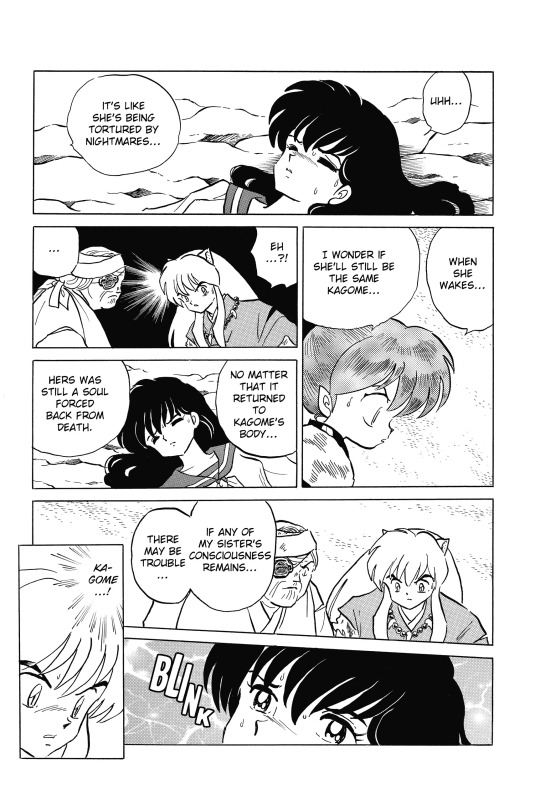

(I include this "comparison" just because he's RELIEVED here at Kagome NOT being Kikyou. It's the first explicit indication that he likes her for her and would be heartbroken if the girls got switched.)
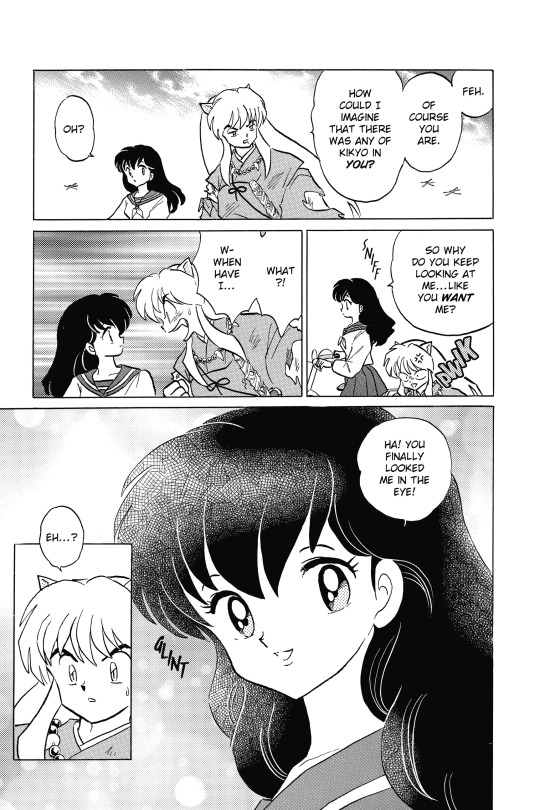

(Then he proceeds to make it even more explicit, and even Kaede spells it out.)
He completely stops comparing them in any capacity after this, and the way he does it says to me that he sees and values them very differently IN SPITE of the slight physical resemblance, not BECAUSE they look alike.
"But Kit!" I hear you say, "These examples are meaningless because they are AFTER he tried to kiss her!"
Well I disagree his feelings would have changed that drastically in the small amount of time given the context, but let's still look at all InuKag have been through at this point. I'll just do a montage of Inuyasha feeling pride or affection for Kagome in said arcs because I am self-indulgent like that, lol.
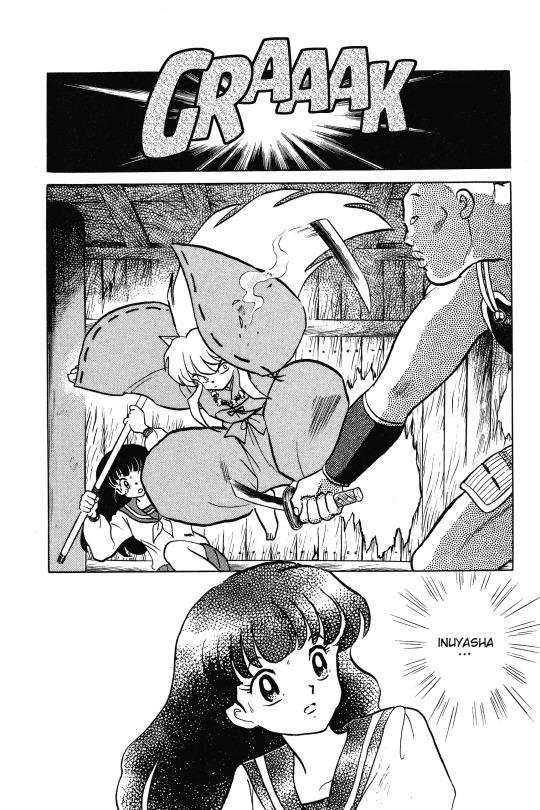
(My boy did not need to protect her, here. If she was gone, he'd be free of the beads and thus free to just take the Jewel. He did it purely out of valuing her life in some capacity.)
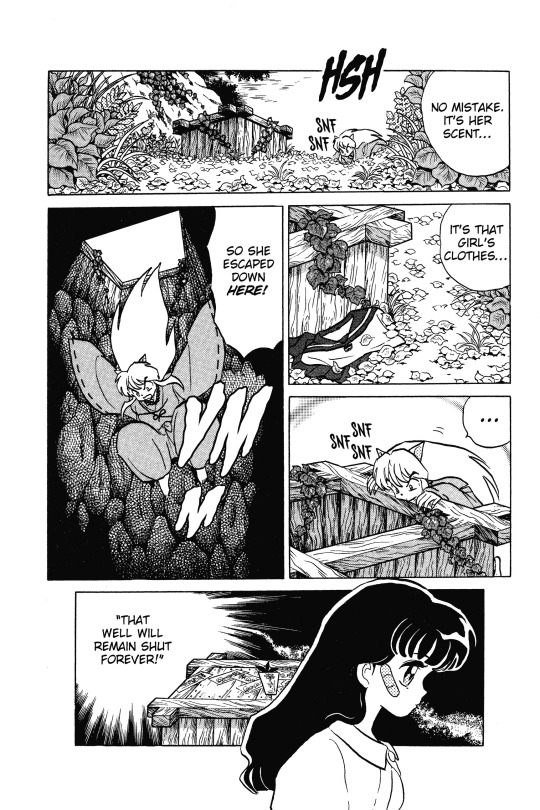
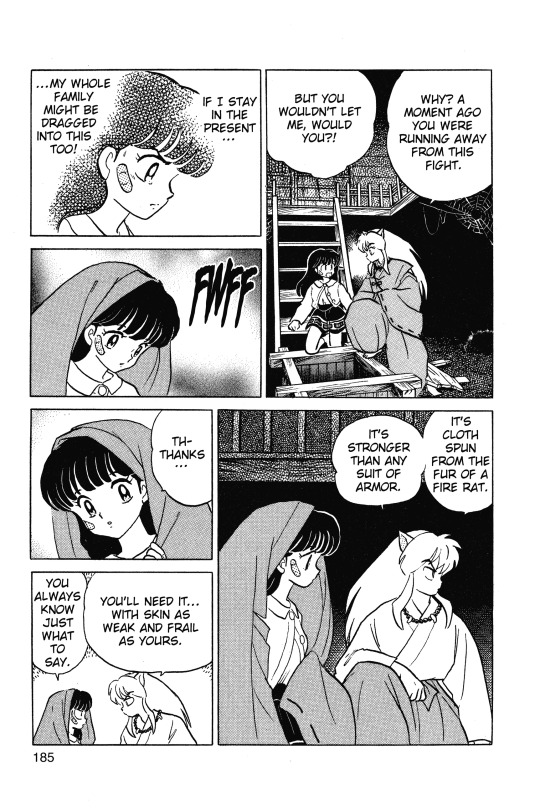
(Knowing her scent already? Lending her your only armor just so she won't get hurt? Why Inuyasha, that's not extremely intimate at all!)
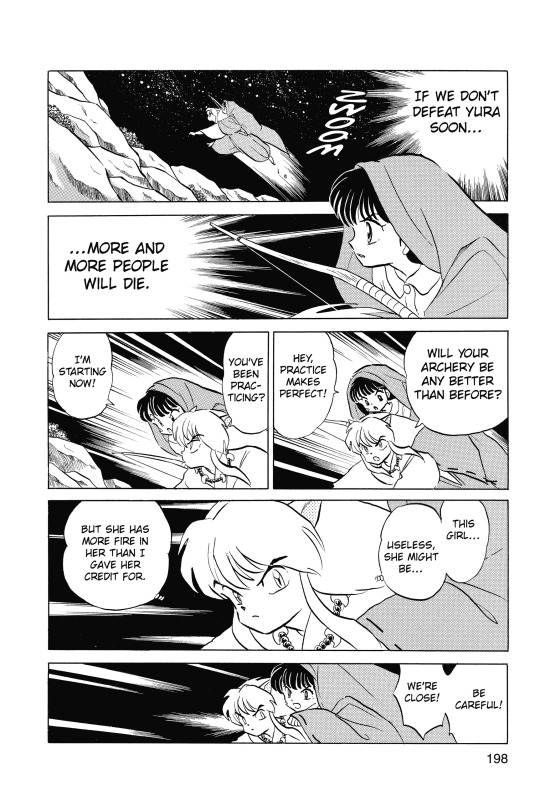

(I find him saying her name significant not just because of differentiating her from Kikyou in his mind, but in that Inuyasha doesn't say ANYONE'S name unless they are important to him. Exceptions.)




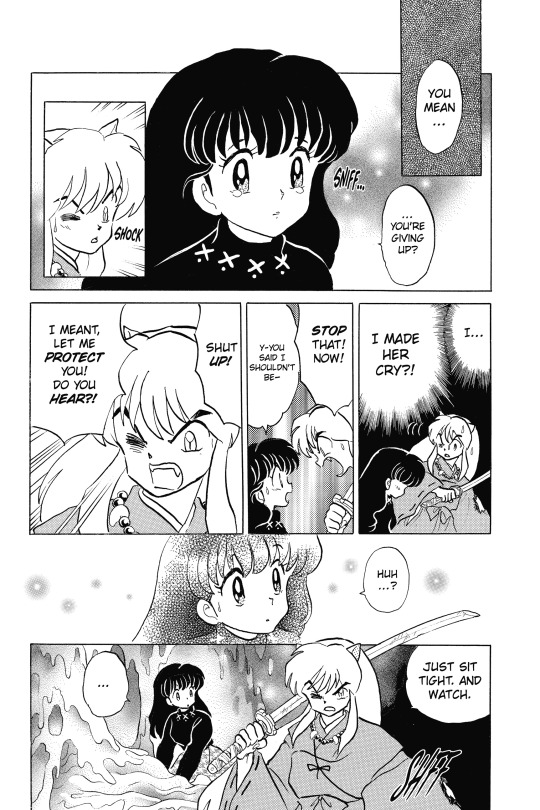
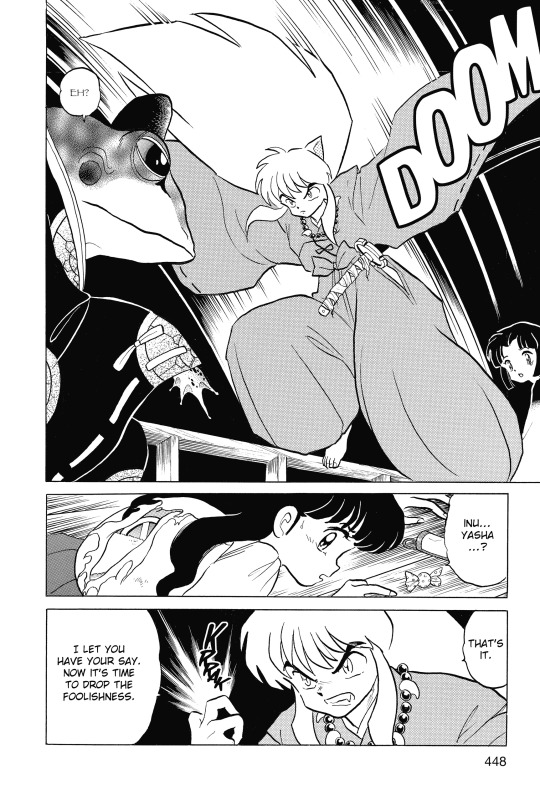
("I refuse to get involved!" *Kagome's in trouble, immediately gets involved*)


(I love this arc overall SO MUCH cuz they not only have their first friendly pouty BFFs spat, but Inuyasha then immediately comes running to save her after smelling her blood THROUGH SPACE AND TIME, and is so desperate to be relied on cuz it makes him feel good to protect her and he's realizing that.)


(Lest we forget he had SOMETHING TO TELL HER right before threading their fingers extremely intimately.)

(Inu wasn't in this arc much but he WAS very worried and impressed with her.)

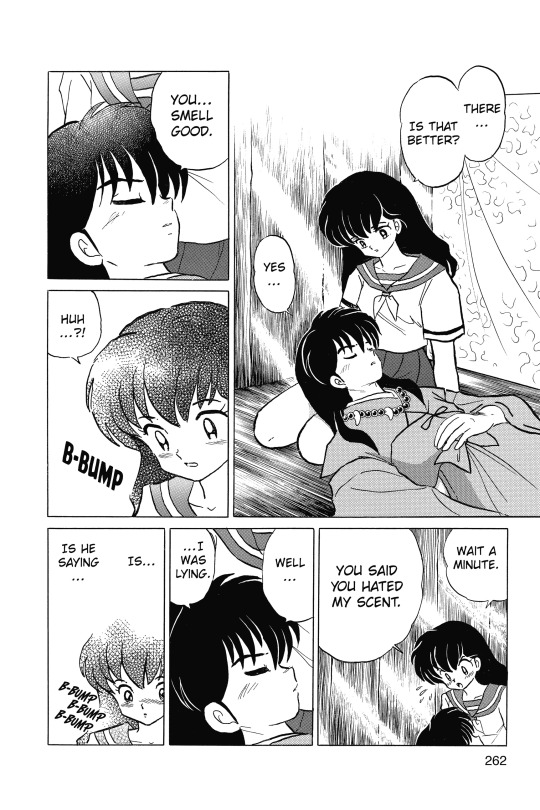
(I could honestly put the WHOLE spider head arc in here and gush about every detail of their character development, but we all know the highlight and I think Rumiko put it best in the Profiles Book that Inuyasha had never encountered or thought of anyone who would be saddened by his death before. I truly believe this is when he decided to open up and give his budding feelings for her a chance to bloom. And more importantly for this particular argument, decides NOT TO LIE to her again.)
And it's at this point we come to him trying to kiss her. It's true Inuyasha's emotions are slightly volatile from Kikyou being brought up. It's a definite sore spot, which even Kagome picks up on. Kagome asks point blank if he still sees her as Kikyou and hates her for it. To which he says she has it all wrong.
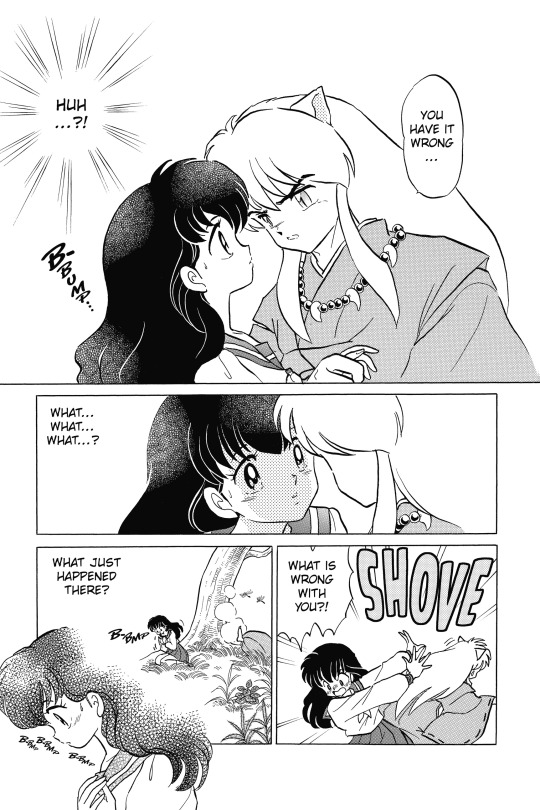
Considering her previous statement was if he HATES her, we can pretty easily infer that he's answering that directly, here. As in, no, he does not. Reading into context clues and what we see before and after this moment, I'd go so far as to say he's implying he LOVES her, here. Or at least is beginning to realize he likes her much more than as a friend. The last arc was huge for him, let's not forget that. He'd never ever been vulnerable like that with anyone: both in letting them know his night of weakness, and emotionally. All signs point to him having realized he's fallen for Kagome pretty hard and is ready to finally LET himself fall. (Though clearly Kagome's not quite ready herself, yet.) I'd argue that Kikyou's resurrection arc and the arcs following shortly after that I linked moments from earlier are there to just cement that he doesn't see her as Kikyou to any viewers who are still skeptical.
In the manga anyway, we're never shown Inuyasha pining for Kikyou or wishing she was back to life. Quite the opposite, he only wishes her to rest in peace and reach Nirvana, which he has said to her more than once. The closest we get is this line right after the resurrection arc comes to an end and Kikyou's presumed dead from the cliff:

Which I personally interpret as him still being heartbroken, yes, but the fact he brings up the idea of falling for another woman tells me he's still mulling over how he has romantic feelings for Kagome, and his trauma regarding romance making him wonder if he should backpedal on that or give up his initial goal that was a symptom of his heartbreak in the first place. (As in, he immediately stole the Jewel after Kikyou betrayed him essentially to make the hurt go away as soon as possible. Also note this is AFTER the almost-kiss, right before Miroku makes his appearance.)
So I have a pretty hard time believing that he suddenly decided to lie to Kagome right after his entire breakthrough night of vulnerability with her, and how that affected him. Also keep in mind that Kagome doesn't have concrete feelings for Inuyasha yet, so there is no jealousy or lack of confidence where Kikyou is concerned at the point of time in question. One could (shakily imo) argue that he might lie to protect her feelings later on, when he's worried about her becoming angry or jealous, but he has no such reason to lie, here. Therefore I believe he's being extremely genuine, and probably the most genuine he's been so far since he decided to abandon his previous lie about disliking her scent. I truly think he wanted to find out what kissing was like with this spitfire girl who'd run away with his heart already and made him feel and share things he'd never felt or shared with anyone.
I hope this at least elaborated on why I see that scene the way I do! If you have questions or want me to discuss an aspect of it further, don't hesitate to hit up my inbox again! I'm happy to share my thoughts on the series and especially InuKag!
75 notes
·
View notes
Text
Things I noticed the nth time watching Nimona:
Knight armour can get sliced through like nobody's business (Balister's arm), but can take a laser hit without serious, body-altering consequences (Director hitting Ambrosius with a laser made from the same one that apparently has the power to wipe out half the realm, or kill an Immortal being who doesn't feel severe pain from an arrow wound)?
...is this because Ambrosius' armour was made to be more protective than Balister's?
"She manipulated BOTH of us." Ambrosius says this about Nimona, who he had very few interactions with aside from her very blatantly fucking shit up for the institute. How did she manipulate HIM?
I guess it probably makes sense when you consider he was going to arrest the director, implying that he believed Bal AND Nimona, but I dunno. The little rat in my head started running on its brain-powering wheel at all the possible fanfic plots this could lead to.
Nimona as Ambrosius grabbed the Gloreth statue when they fell to the ground.
On the one hand, this could just be actor!Nimona putting dramatic emphasis on how even in death, the leaders of the realm will cling to their hopes and beliefs, or the golden boy finally getting to join his ancestor.
On the other hand, we could make it deliciously angsty (yum yum) and say it is Nimona's personal desire to grab the statue of Gloreth for reasons such as: taking down the monster-killer image of her former friend out of anger and sadness because she never wanted that image to be so true in representing one of the few people who ever cared about her even briefly;
OR, While trying to think about how she would act if she were actually dying, she reaches for the closest thing to a friend that she has, but this is her staging a false death, as that particular friendship was false so this is just fitting, isn't it?;
OR, They wanted it to spread a message that with the fall of the director, would come the fall of the corrupt system they live in, as well as the fall of this narrow-minded view of both Nimona and Gloreth's story as well as Gloreth and Nimona themselves.
Nimona freaking out about the arrow in their leg in the comic vs Nimona treating it like a little scrape not to be worried about in the movie.
This is really interesting to me. In the comic, it's played up for humor like Nimona is almost overreacting, then having Bal take care of her because he does care about her. This shows it as a bit silly, but so very meaningful.
Then you have the movie where Balister is freaking out and it's kind of funny because clearly Nimona is relatively fine about it, so he doesn't really need to make a big deal out of it. Then he helps her and is still very careful about it like with anyone else's arrow wound, and asks her questions so he can better understand them. Again so very important.
I love both versions of these scenes, I just am so curious about why they made such a drastic change.
I love this movie so freaking much. (I knew that already, but it bears saying for the thousandth time. It's just so fucking good.)
For this last one:
TW: mention of police brutality (discussed as a theme in the movie, nothing specific outside of the Nimona movie)
"He's got a weapon." It's not a weapon. It's a phone. But Todd (and who knows how many of the other knights) didn't choose to see it as anything other than what the director told him it was, and destroyed it as he was trained to do. This screams messaging about the stupid, dangerous, and harmful actions of too many police officers who don't check the situation for themselves before acting on "information" they gathered from insufficient data and/or unreliable sources, and combine that with profiling to make decisions that so often end up being harmful and even fatal to others.
#nimona movie#nimona#theories#headcanons#things i noticed#ballister boldheart#ambrosius goldenloin#angst
73 notes
·
View notes
Text
An Attempted Explanation of Andrew’s “Manic Pills”
One of the things that bothers me about AFTG is Andrew’s medicine. The way most of the characters talk about court-mandated psychiatry and sobriety and mania is a questionable and often harmful representation of what it’s like to experience mania/hypomania — which like, it’s fiction, that’s fine, but it’s also something that I take a lil personally. So I’ve decided to try to legitimize the whole thing for myself, just because I can!
Necessary to note: I’m not a medical professional, a lawyer, etc. I’m usually a pretty good fact-checker, but I could definitely be wrong abt stuff, and I’d love for you to tell me if I am. I ran a lot of this by the lovely @the-greater-grief, who does have a medical background and also inspired me with this analysis they did on Andrew’s mental health. They were really helpful in explaining a lot of the more technical drug information, so they’re largely responsible for most of the theory that makes sense lol. But, they are also not responsible for me saying things that are wrong, lol! Alsooooo, I’ve been in the fandom for less than a year so it’s possible I’m saying stuff people have said before. Idc. I’m having fun reinventing the wheel lmfao. Okay, onwards!
The post has two parts:
Lovingly dismantling a lot of the bullshit Neil tells us in the books
Setting up a more realistic version of Andrew’s mental health situation
Apologies in advance, this got long-winded. Let’s do this!
Dismissing Neil’s framing
AFTG is told from Neil’s perspective, so we as readers are limited to the things he knows and understands. We know that Neil is often unreliable, and as perceptive as he can be, he makes a lot of questionable assumptions that he internalizes as fact.
This is what he tells us, rather crudely:
Andrew tried to kill some guys, because he might be a psychopath/sociopath.
Rather than being sent to prison, he was court-mandated to take drugs that make him “manic”/less likely to kill other people.
The manic pills make him crazy and also make him sick, to the point where the characters refer to him as “sober” when he is unmedicated.
The withdrawal is severe enough that his psych wants him to be hospitalized to come off them.
We learn all this about Andrew’s treatment from three sources: Information Neil read before he even joined the Foxes, Nicky’s exposition dumps, and Andrew’s actual behavior. The bullshit mostly comes from the first two items on this list, because Andrew never cares to explain much of his situation to Neil. And we can actually brush all of it off pretty easily.
Neil builds most of his perception of Andrew’s treatment on top of information from articles he read about Kevin’s transfer to Palmetto State. These articles were unkind — the Exy world was upset that Kevin was leaving the Ravens, and Andrew was painted in a cruel and probably inaccurate way. Neil mentions an article headlined “The Prince & the Pauper”... I personally would not take anything from that article seriously.
Some of this bullshit is corroborated by Nicky, a 20-something year old jock majoring in marketing. When Andrew was sentenced, we can guess that Nicky (still basically a teenager himself) was very scared that his cousin, who he is responsible for, was going to get sent to prison. Based on the way he talks about mental health in general, I wouldn’t consider him to be an expert on the nitty-gritty of psychiatry. He just saw the outcome of the trial, which was not prison, yay! and instead involved some kind of pills that made Andrew way more social. Also, as much as I think Nicky tries, he doesn’t really get Andrew — he thought Andrew was straight, and then he thought he was hate-fucking Neil. He’s not a reliable source when it comes to judging how Andrew’s brain works/how he is affected by his treatment.
This leaves Andrew’s behavior, because he never talks about his mental health except to say that he’s “crazy” and that he is not a sociopath. When he’s on the medicine, his behavior includes an elevated mood, a short attention span, and trouble curbing his impulses. When he doesn’t take his medicine on time, he experiences withdrawal (nausea, fatigue, etc), and feeling ill seems to curb some of his mood elevation enough to let him think with more clarity. When he’s off it, he is able to shut down his emotional reactions to things, though he still exhibits flashes of the rage, depression, and zingy one-liners from his behavior in the first two books.
Also, the only people who actually seem to understand Andrew’s mental health treatment are Andrew himself, Bee, and probably Wymack. Aaron might also have a better handle on it all because he’s pre-med, and also he understands Andrew enough to clock that he is gaga for Neil lol.
Okay. Bullshit? Gone.
A proposed alternate story
Once upon a time, some homophobes started beating up Andrew’s cousin and the only legal guardian that didn’t treat him like utter shit, so he went feral on them.
He gets arrested, and somewhere along the line the courts determine that his violence stems from mental illness. Rather than being sentenced to prison, he gets some kind of probation that mandates he engage in mental health treatment. The psychiatrist he sees at the time determines that he has depression — which, like, they’ve definitely seen his self-harm scars, so this is a fair assumption — and he is prescribed an antidepressant.
Now’s a good time to mention that no one would ever intentionally prescribe something to induce mania in a patient. Mania is a supremely dangerous state. People get hospitalized to get out of a manic episode. Whenever I even inch toward it, my therapist and psych are like, “CALL ME!!!!” It also would do nothing to curb violence — the opposite, actually, if the manic person often has a hard time holding themselves back from hurting themselves and others. If you look at Andrew’s behavior in the first two books, I don’t think it would even qualify as full-blown mania. He sleeps, he fulfills his responsibilities, he doesn’t seem to have any delusions of grandeur. His symptoms align better with hypomania, which is less severe and accounts for the things we noted before (mood elevation, short attention span, irritability, impulsiveness). I also think a lot of the stuff Andrew does that is attributed to his medicine is probably just Andrew being Andrew — because as Aaron once said, “it wasn’t the drugs that made him crazy.” (I wrote more about this once in an Andrew character study I did.)
So, the antidepressants would’ve been prescribed to treat the depression, which hypothetically could’ve made Andrew so hopeless and full of rage that he was constantly on the verge of flipping his shit on people. There are plenty of antidepressants that will make you sick/be less effective if you fuck with your dosing schedule, and all the alcohol he drinks probably doesn’t help either. Still, the medicine would just treat depression. HOWEVER! If Andrew actually has bipolar disorder (:D!!!), then some antidepressants do have a risk of inducing mania/hypomania!
It should’ve been obvious that Andrew’s antidepressant was not working as intended. But I doubt Nicky, Andrew, and Aaron had great health insurance before they enrolled at Palmetto, so Andrew’s court-mandated mental health provider was probably like, “cool, not trying to kill people anymore, we’re good.” A good provider like Bee would clock that Andrew had been misdiagnosed, and she’d want to adjust his medicine. But this leads to the final part of the theory — actually suggested by the brilliant Grimm — which also could explain how Andrew came to trust Bee.
If Bee diagnosed Andrew with bipolar, she would want to switch him over to lithium, which is the most common bipolar medicine. I’ve never actually been on lithium, and while I’ve heard it can be really effective, it definitely has a bad reputation — some people say it makes them feel like a “zombie.” Fatigue/dizziness/drowsiness are known potential side effects, especially when you’re adjusting to changed doses — and anyone who’s ever been on a psych med knows that it takes a while to get the dose right. I’m guessing (justified) control freak Andrew Minyard would not be down to risk feeling like a zombie.
(Sidenote: people with bipolar II also get put on lamotrigine, which specifically manages low moods, but from what I can tell it wouldn’t have been common in the mid-2000s. it was only approved for bipolar treatment in 2003.)
Maybe Bee made him a deal: He can stay on the antidepressant, which is not working but is also not the most dangerous thing, as long as he fully commits to their talk therapy sessions so that he can learn how to cope with his symptoms. This is similar to the deal Wymack struck with Andrew. He tends to trust the small handful of people who have given him agency.
Alright, that’s the theory! Andrew has bipolar disorder. He’s not on the right meds. The courts are not doing silly illegal things (well, not in this case anyway), and the jocks of PSU are the real stereotypes here.
Because at the end of the day, this is a tale as old as time: People with mental illness are easily made out to be the villain.
227 notes
·
View notes